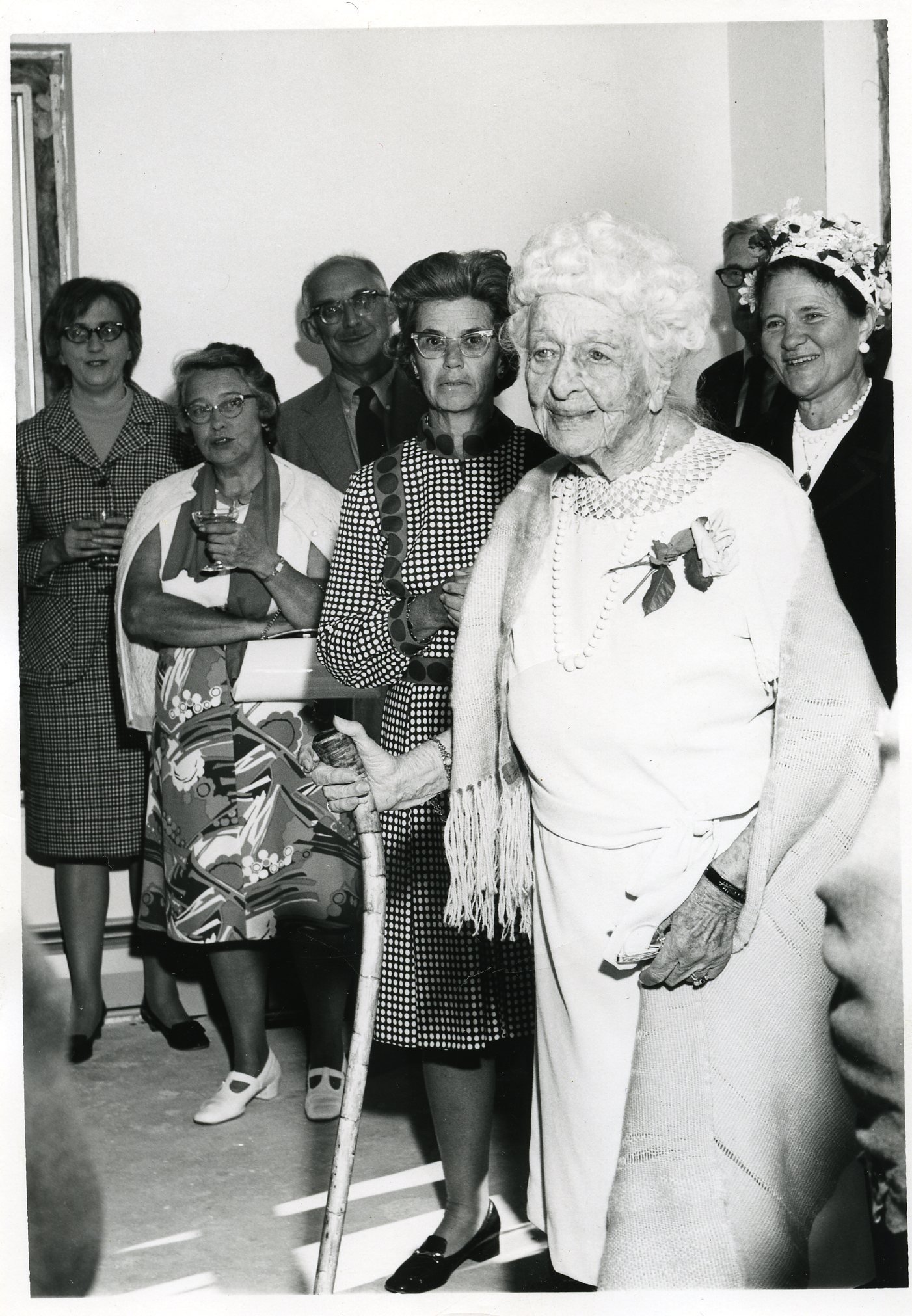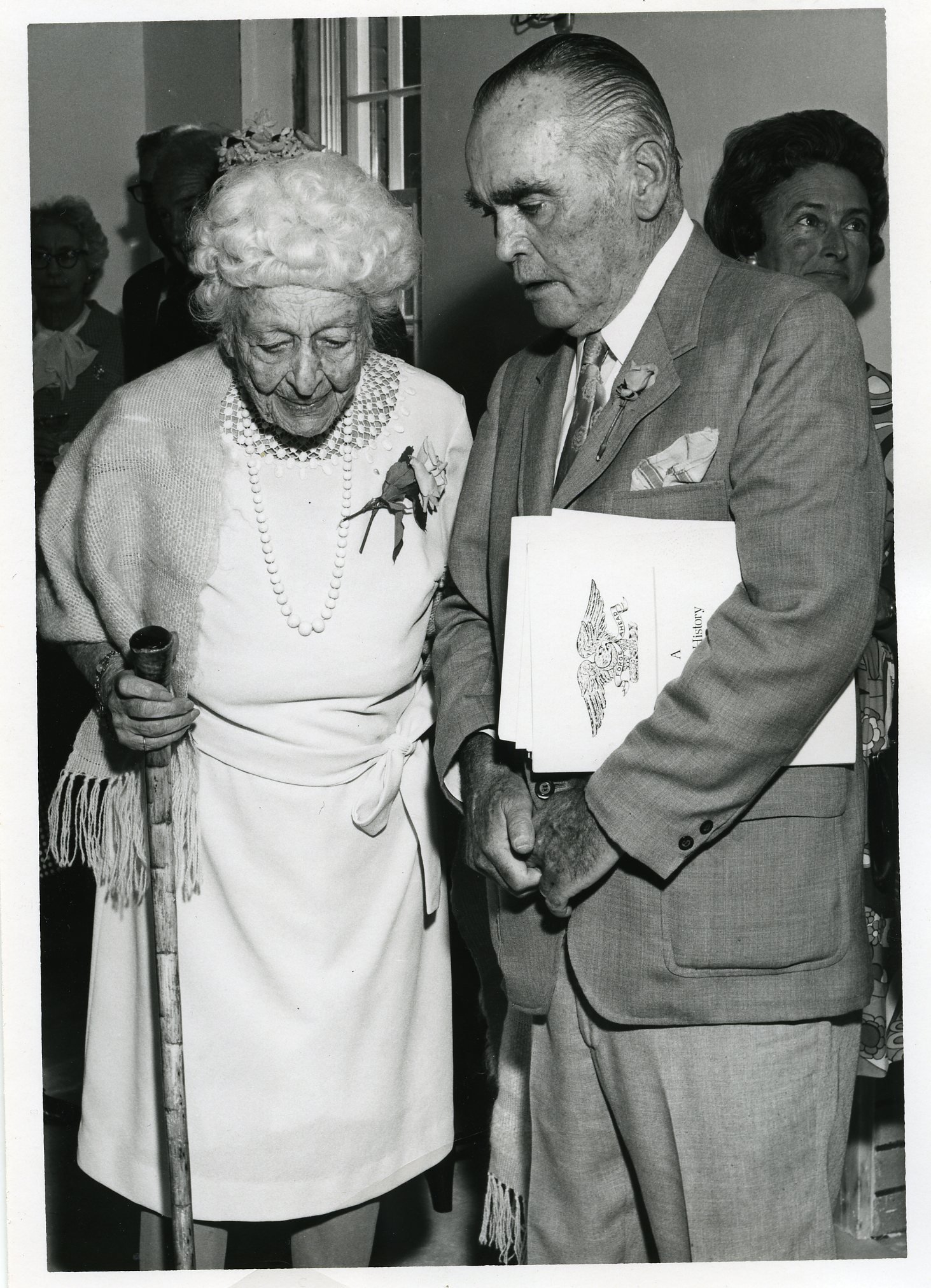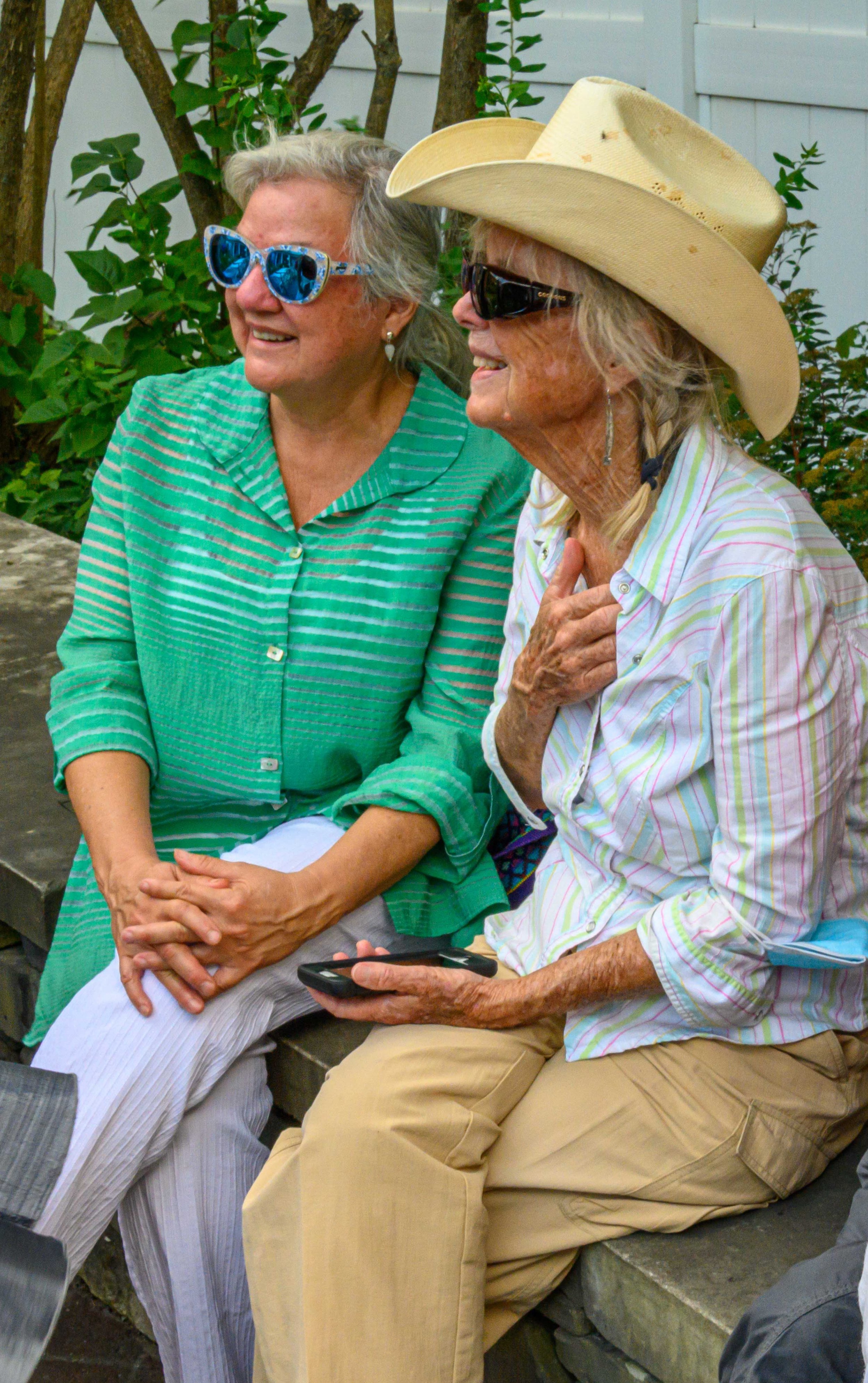50 Years of The SSRC
In 2022, we celebrated the 50th anniversary of the Stewart-Swift Research Center, the Henry Sheldon Museum’s archives. Keep reading to learn about the center’s history and how we celebrated.
The Stewart-Swift Research Center opened to the public in a new building adjacent to the Henry Sheldon Museum in November of 1972. It was equipped with a research room, offices, and a climate-controlled collections storage vault. The Center was named for the benefactors who funded the building project, the locally prominent Stewart and Swift families. The driving force behind the concept of a separate unit holding paper-based documents was the President of the Henry Sheldon Museum Board, Arthur KD Healy, a professor at Middlebury College.
The Center is a repository of historical records originally amassed by the Museum’s founder, Henry L. Sheldon, and enriched by subsequent generations of donors. It consists of primary source materials that document the history of Addison County, with a great emphasis on Middlebury, but also includes materials pertaining to Vermont and the nation.
Among the archive’s greatest strengths is the quality of its manuscripts, the extent of its local publications, and its diverse array of ephemera. The collections cover a broad range of subjects including art and architecture, agriculture, marble and lumber industries, Merino sheep and dairy farms, religious revivalism, transportation, the environment, abolitionism, women’s studies, education, politics, wars, recreation, and other topics. The Stewart-Swift Research Center’s collections are considered one of the richest in the state of Vermont.












View photos from the research center’s groundbreaking ceremony, opening ceremony, and early days below!
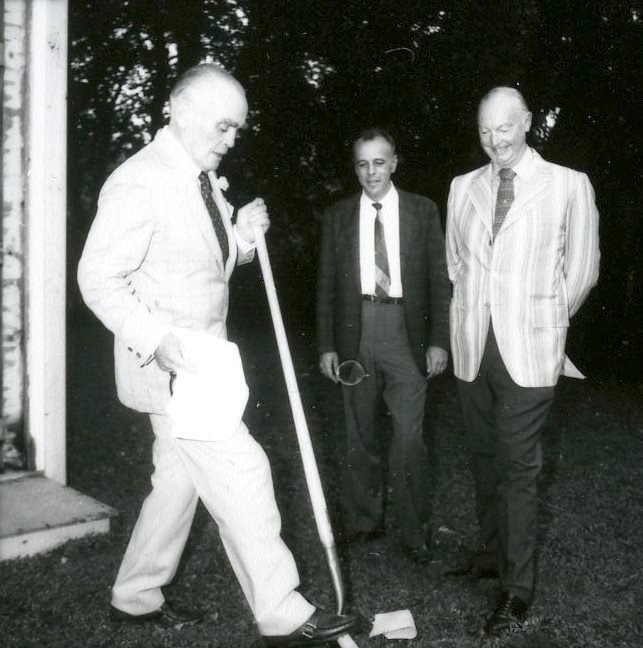
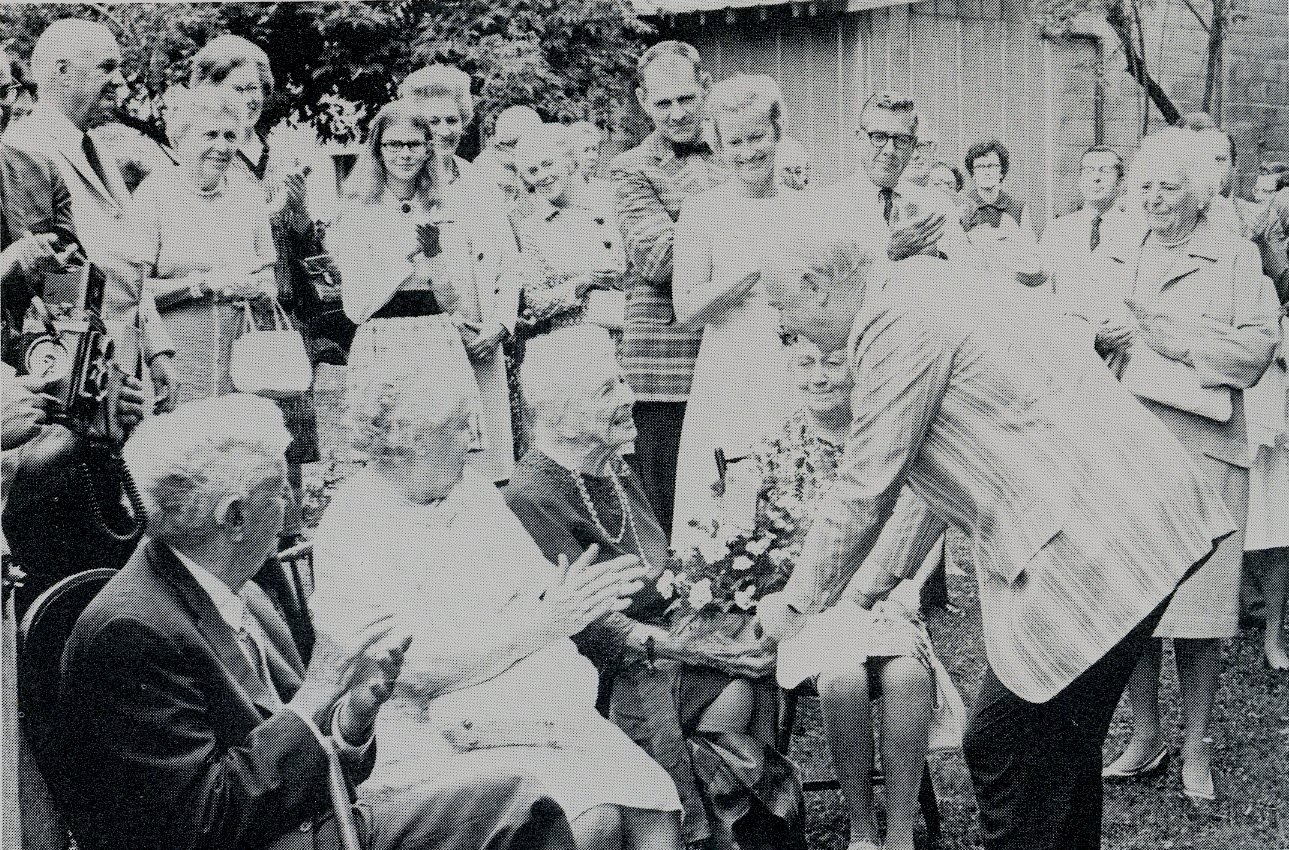
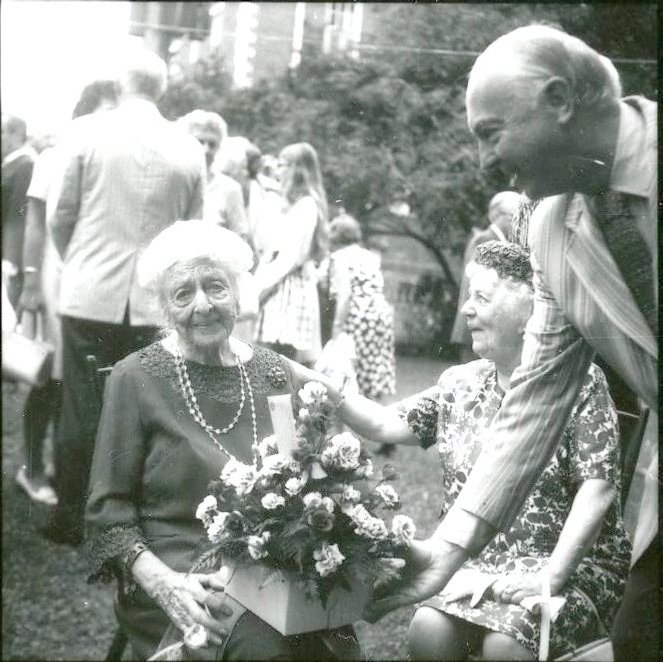
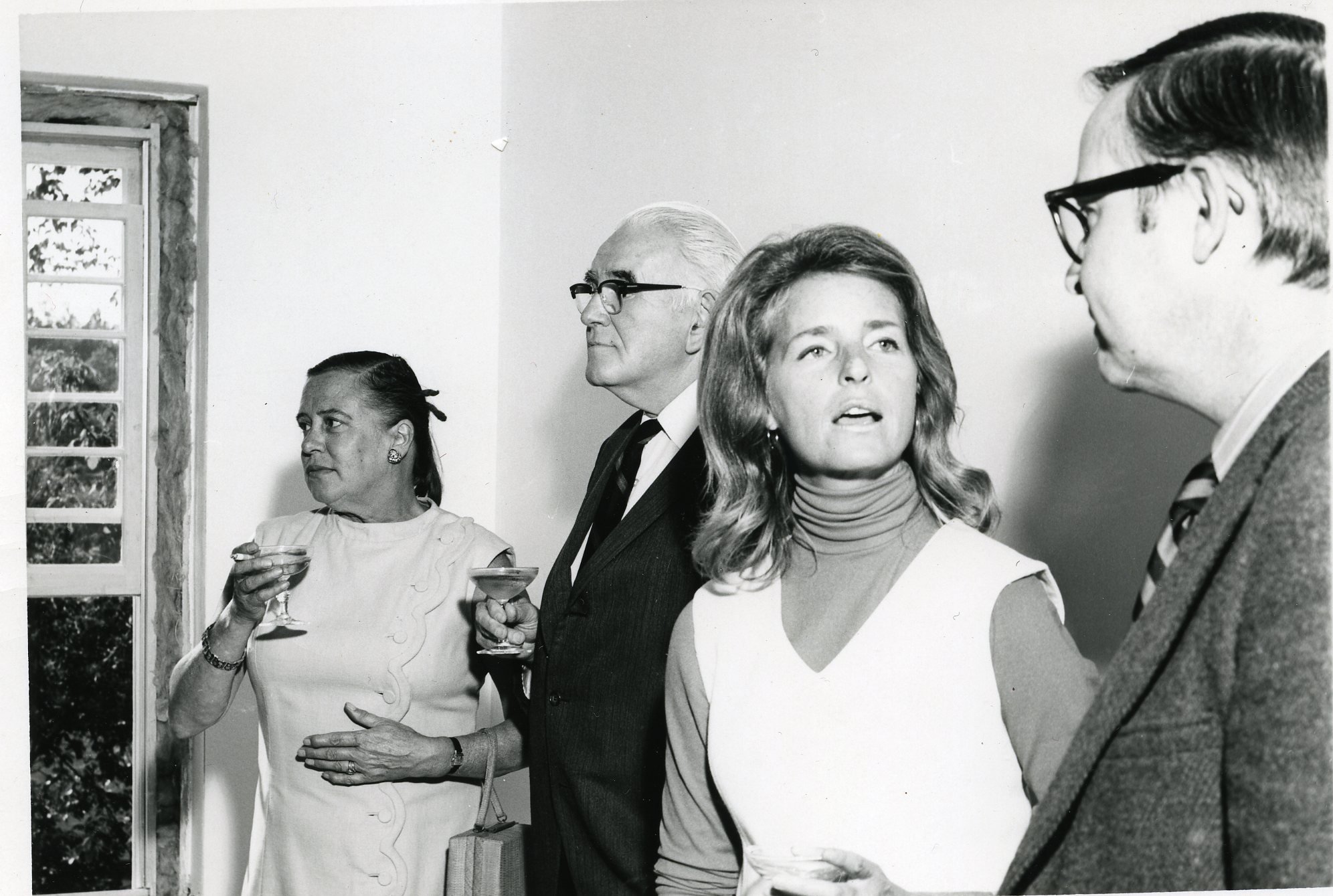
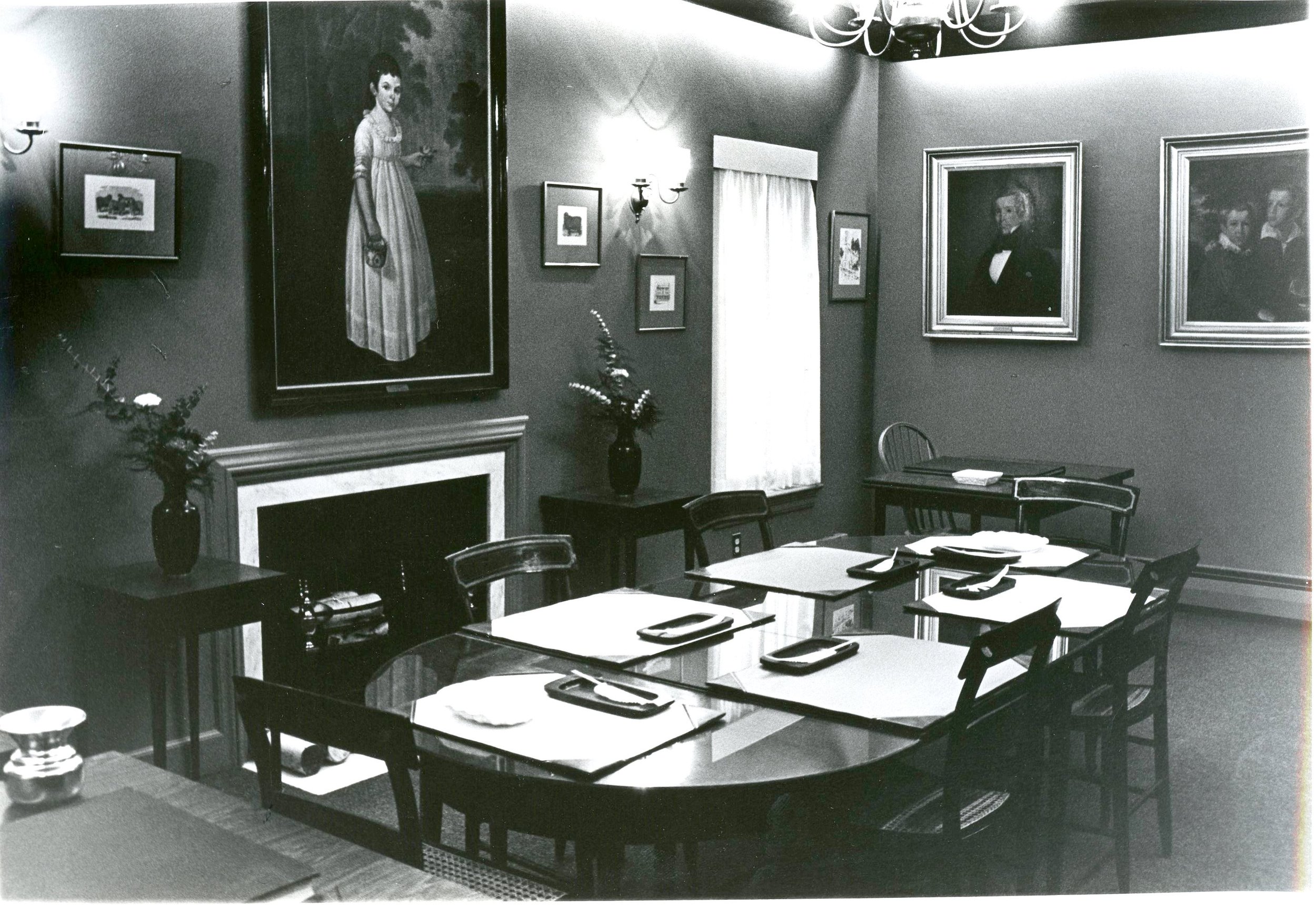
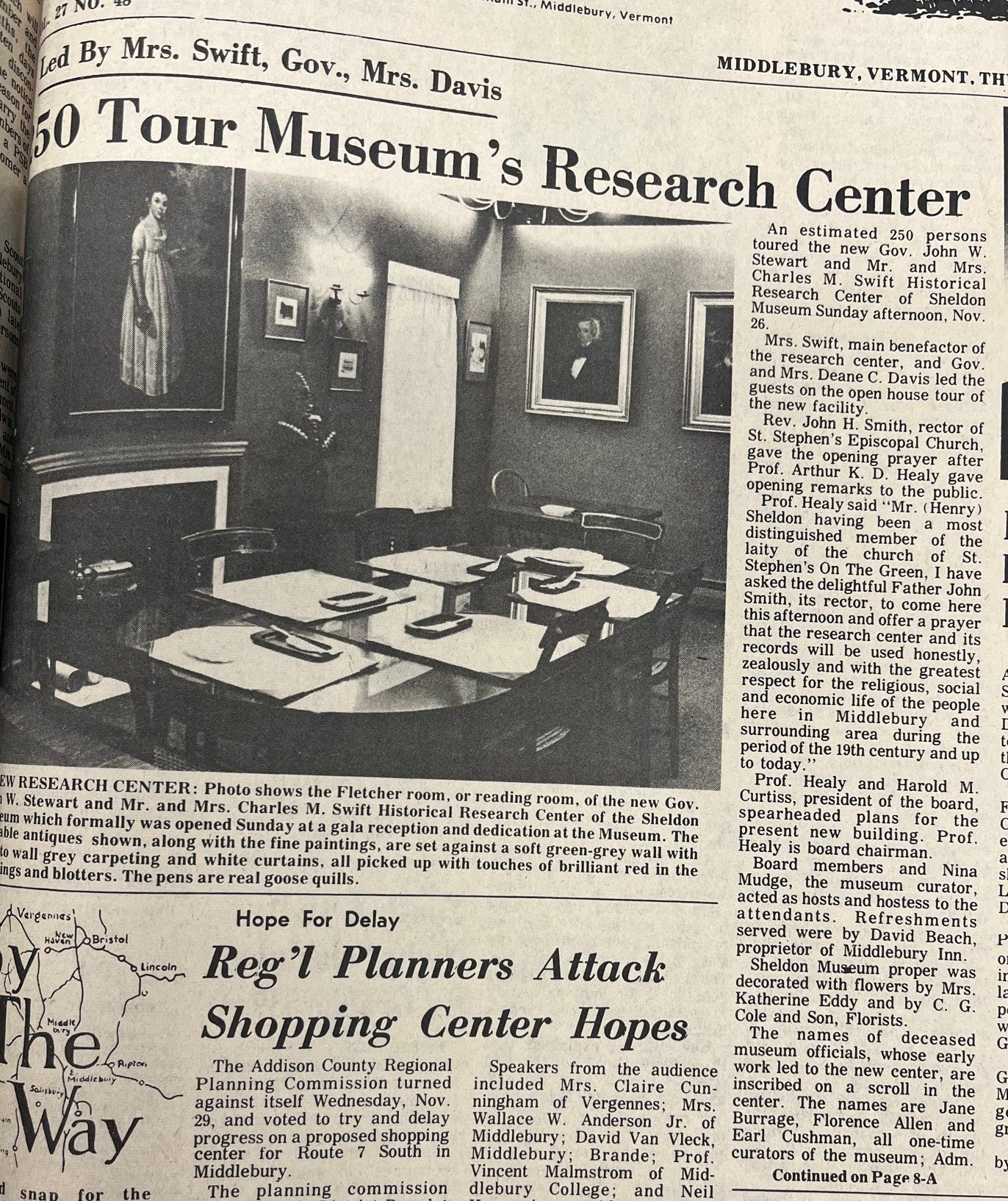
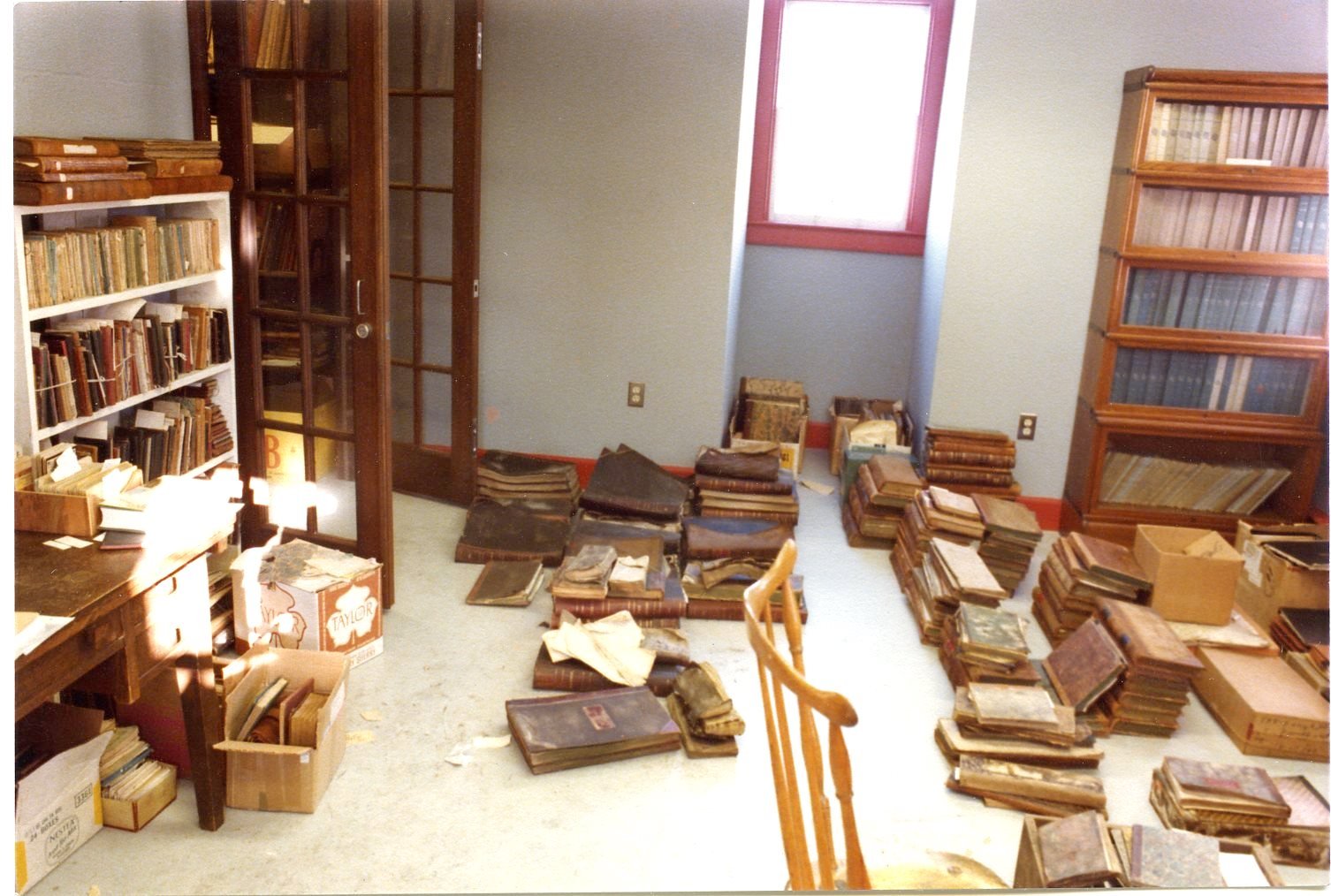
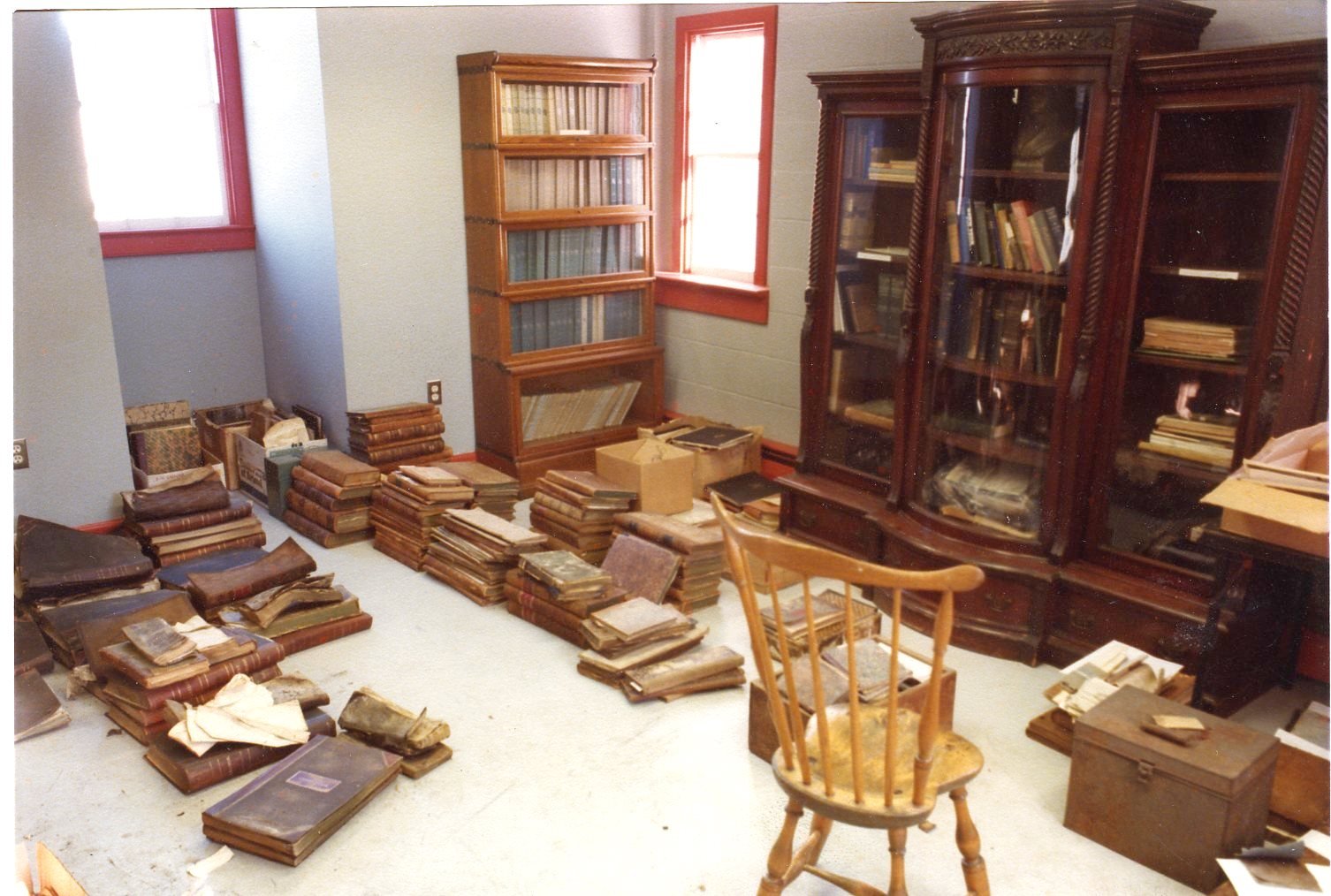
From July 7th-8th, 2022, we celebrated the SSRC’s 50th Anniversary with a garden party and archive open house!
(Photos by Dave Devine)

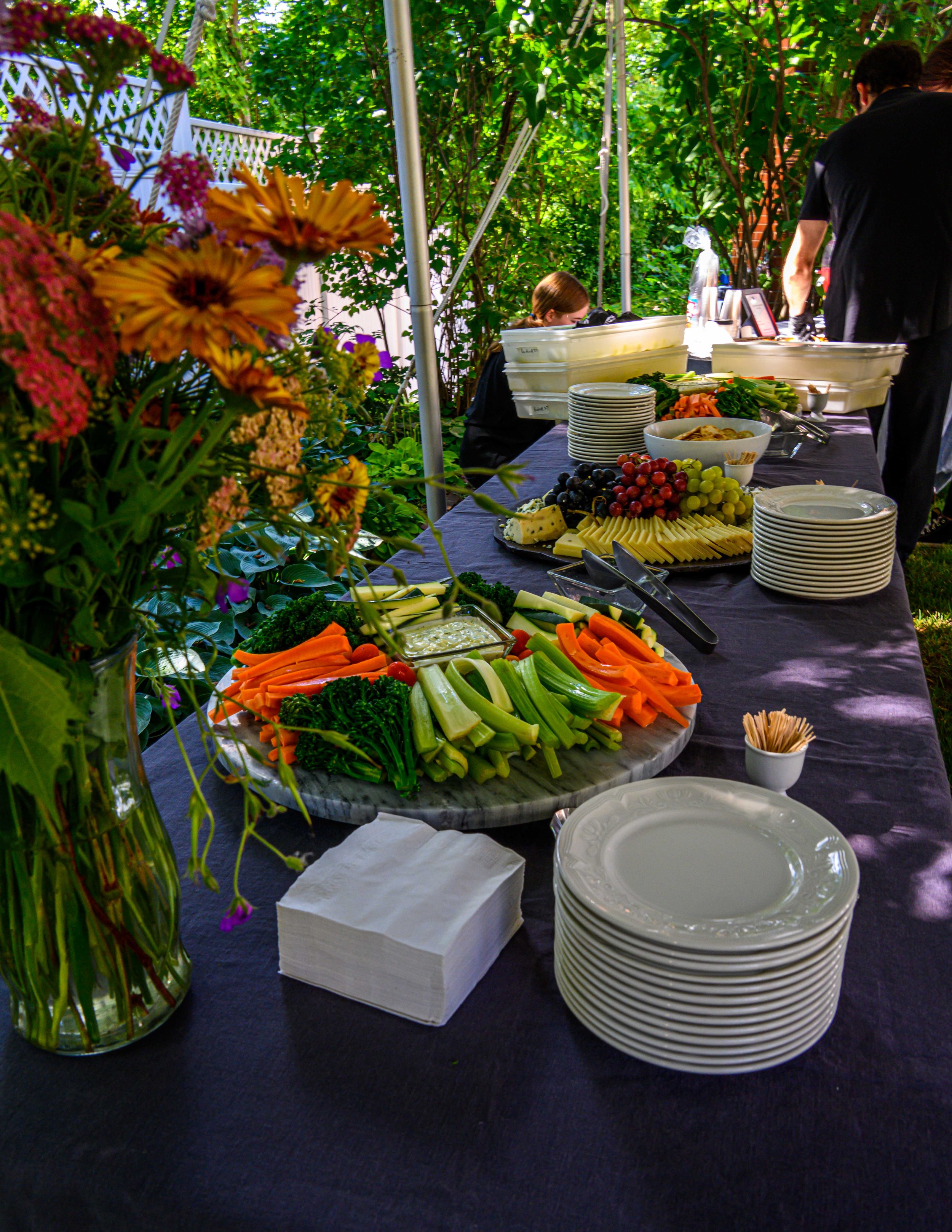
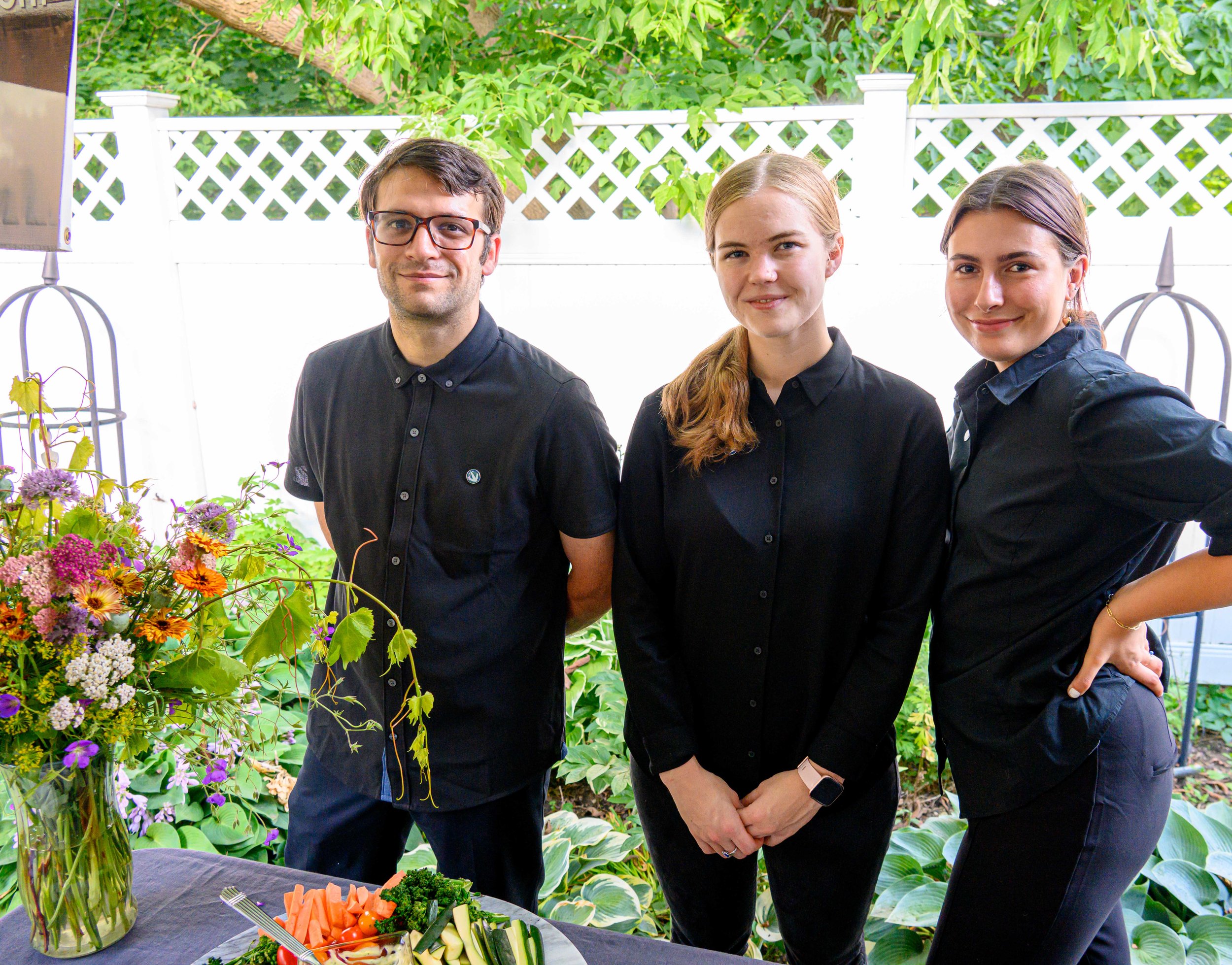
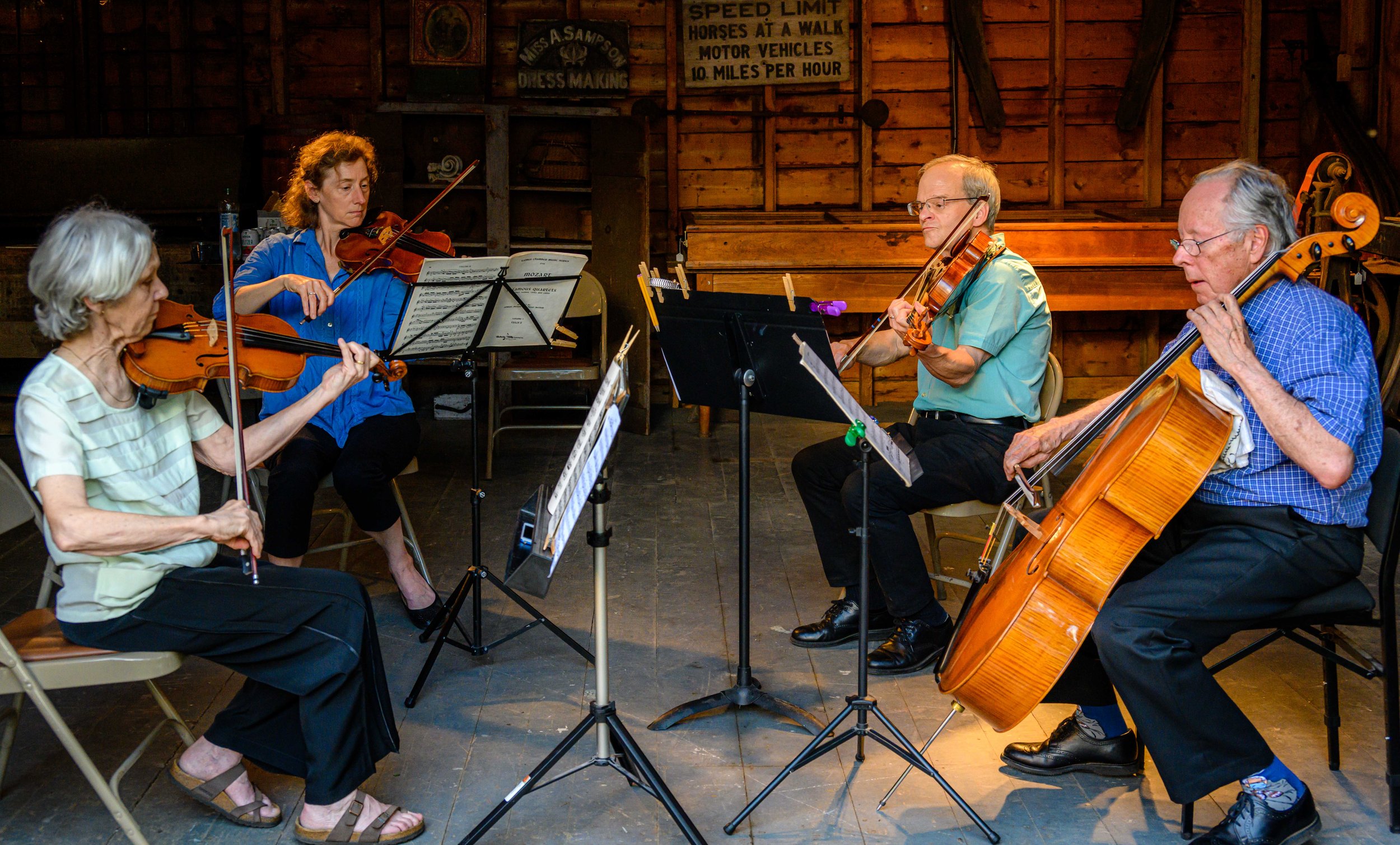
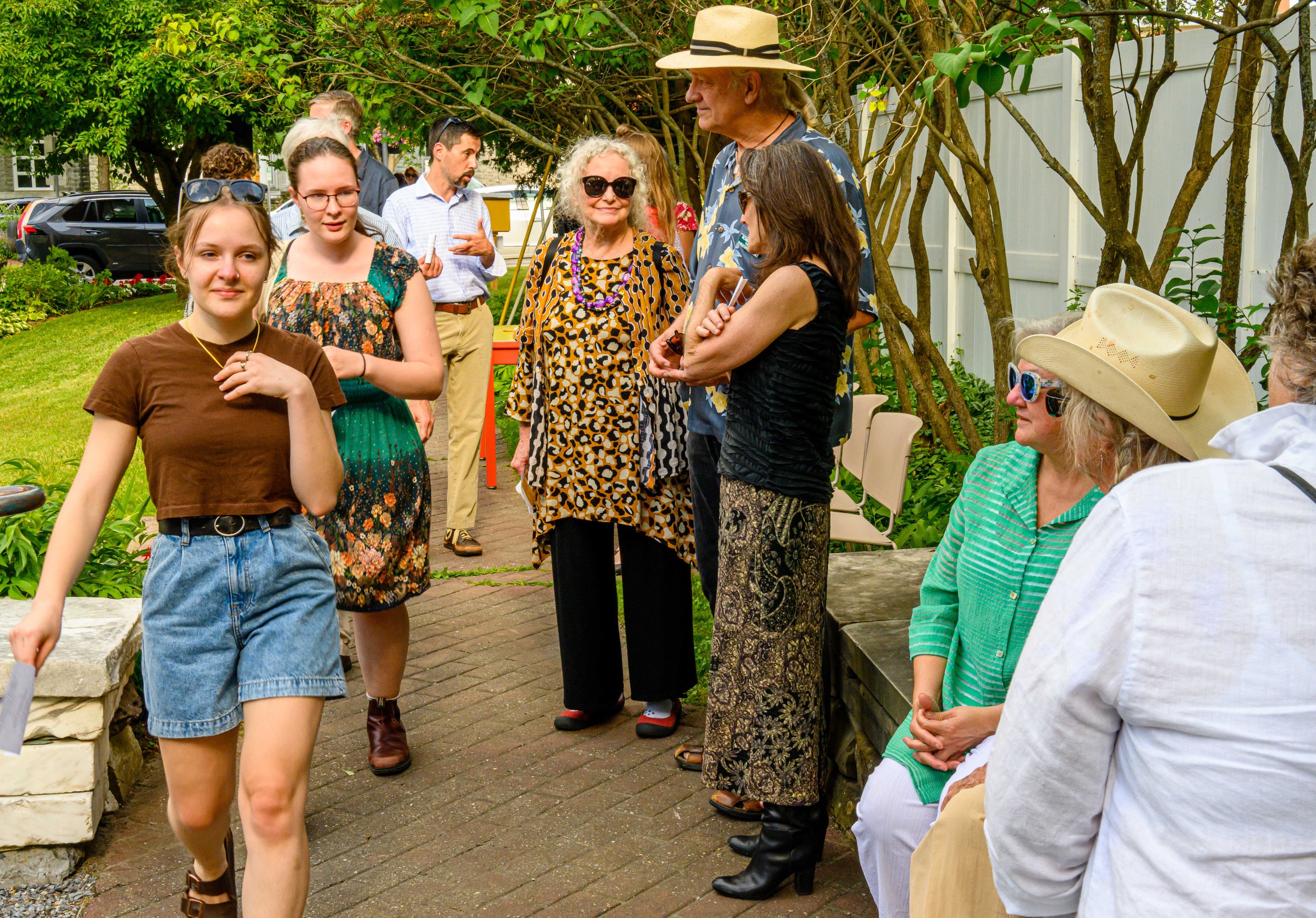
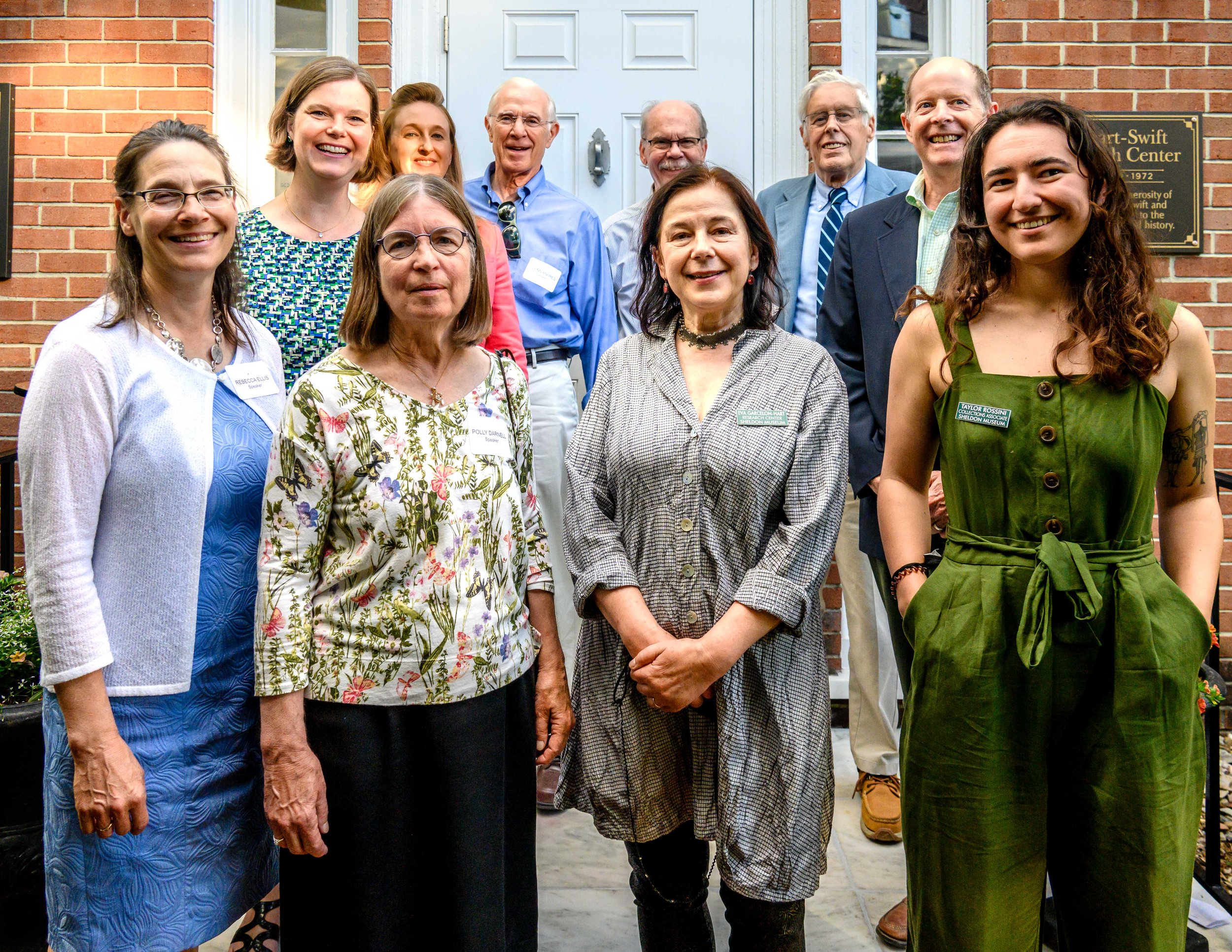
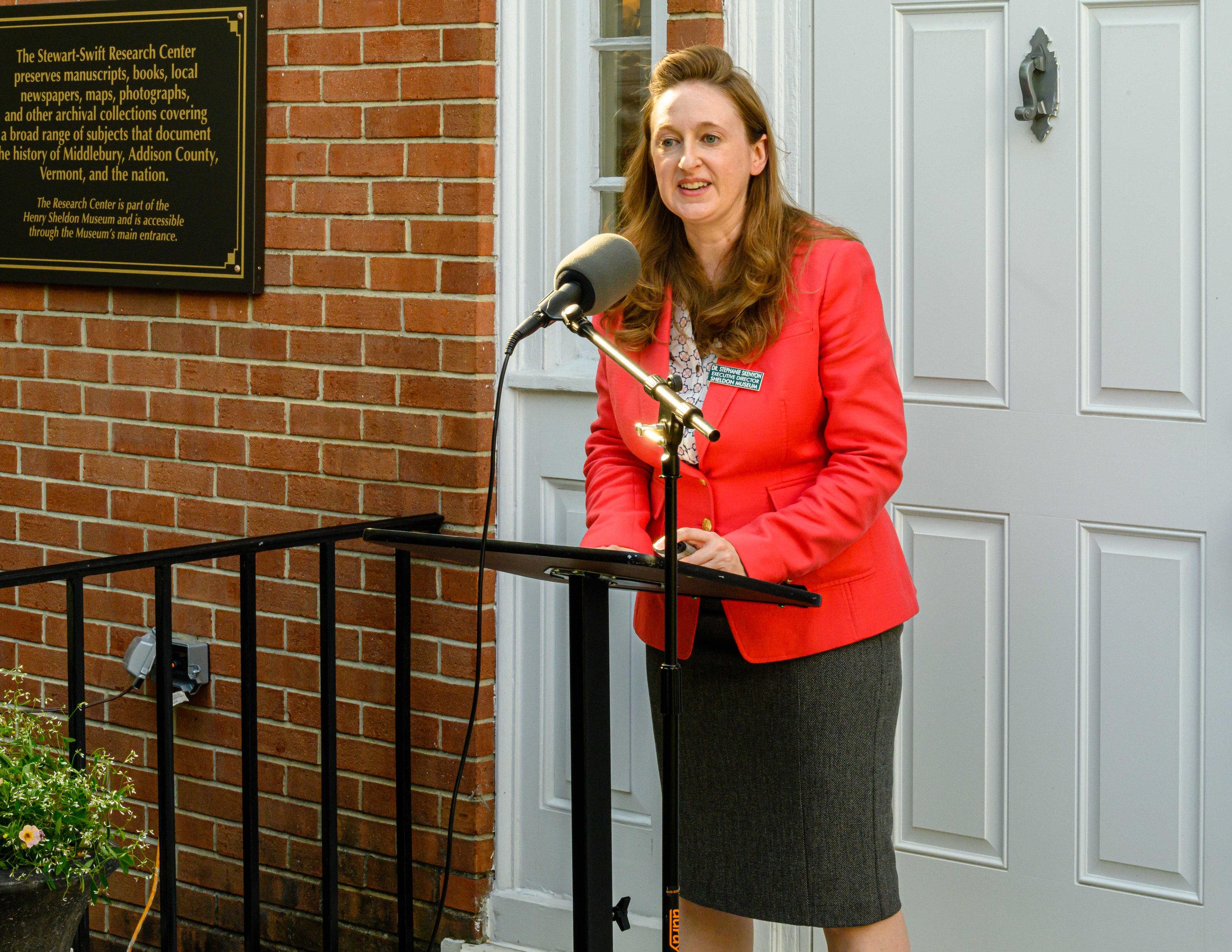
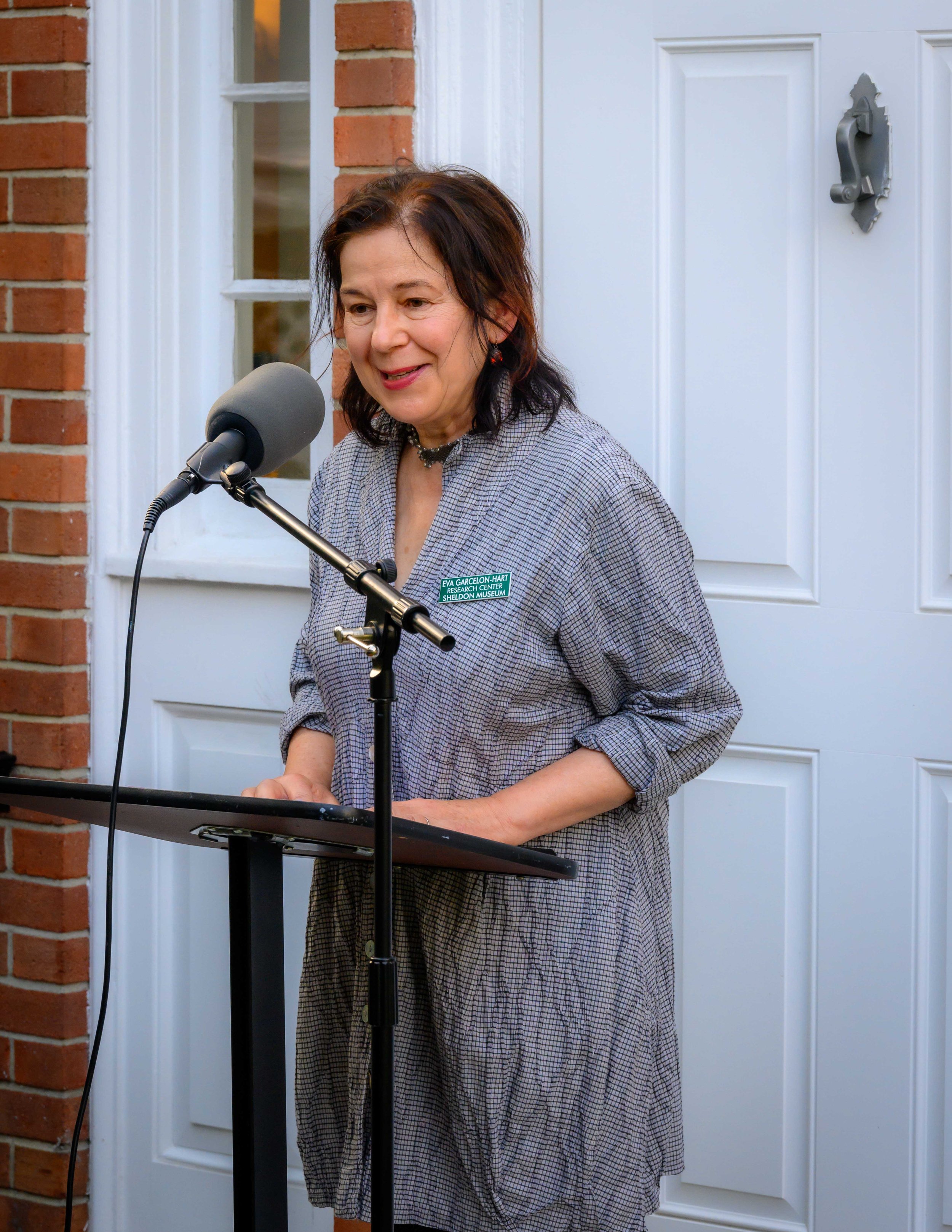
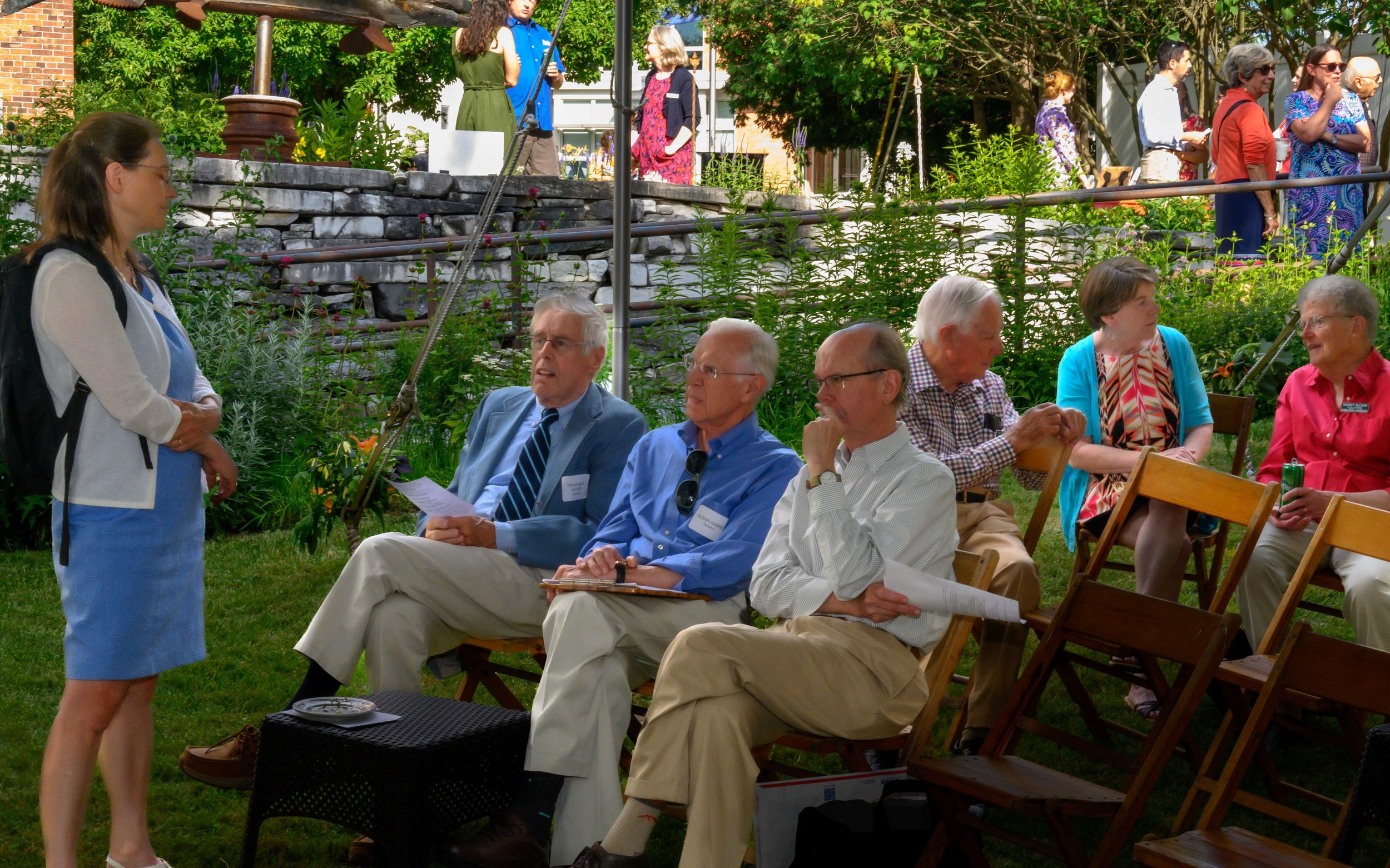
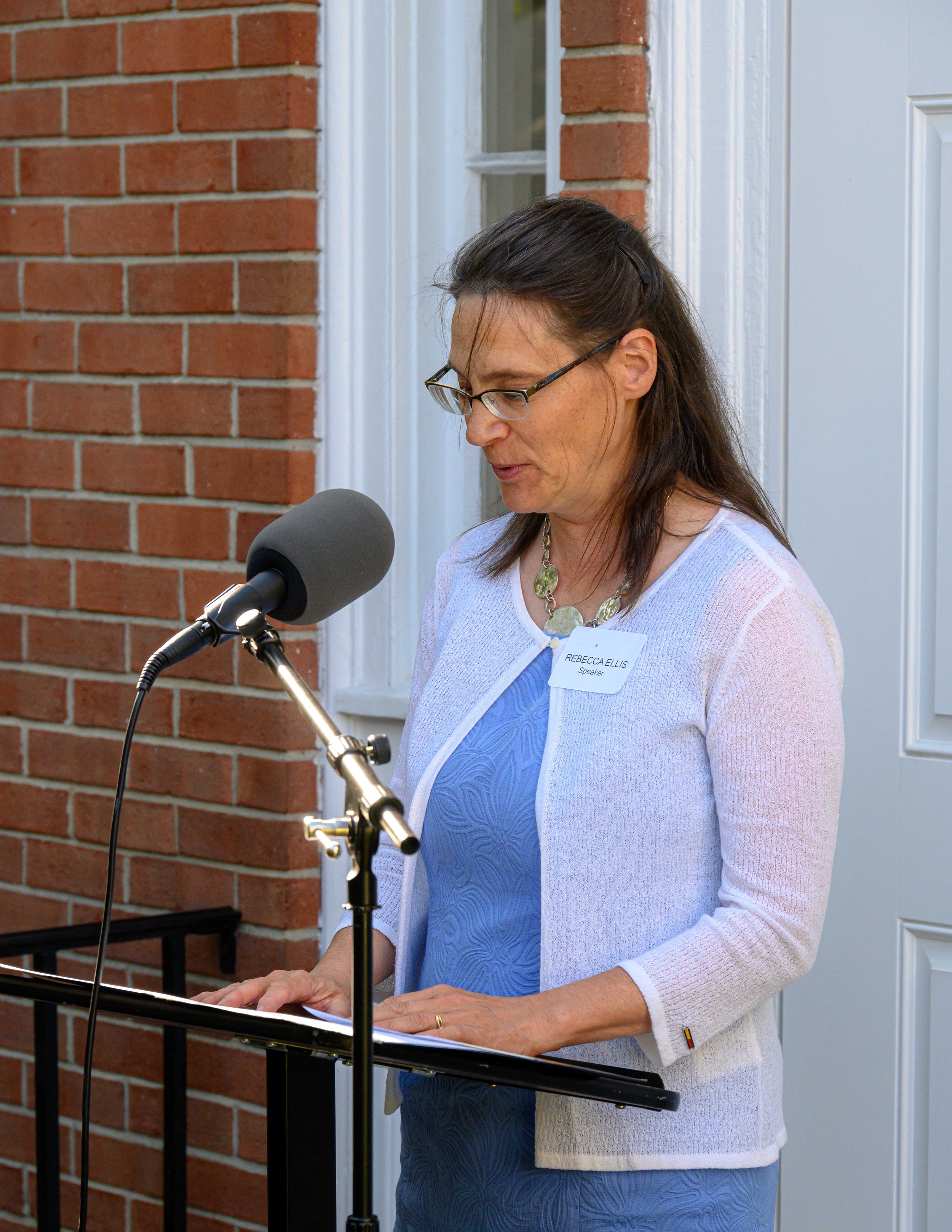
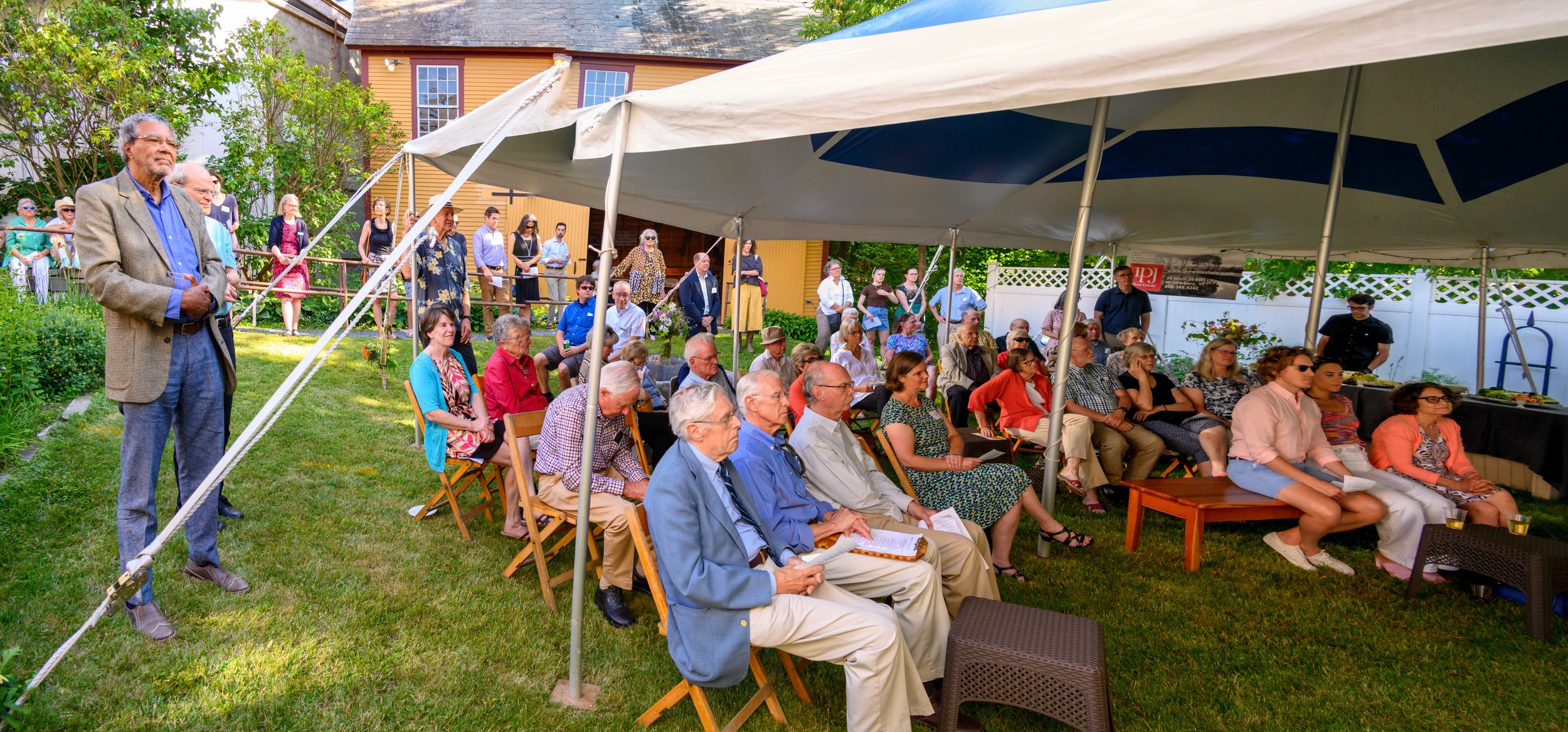
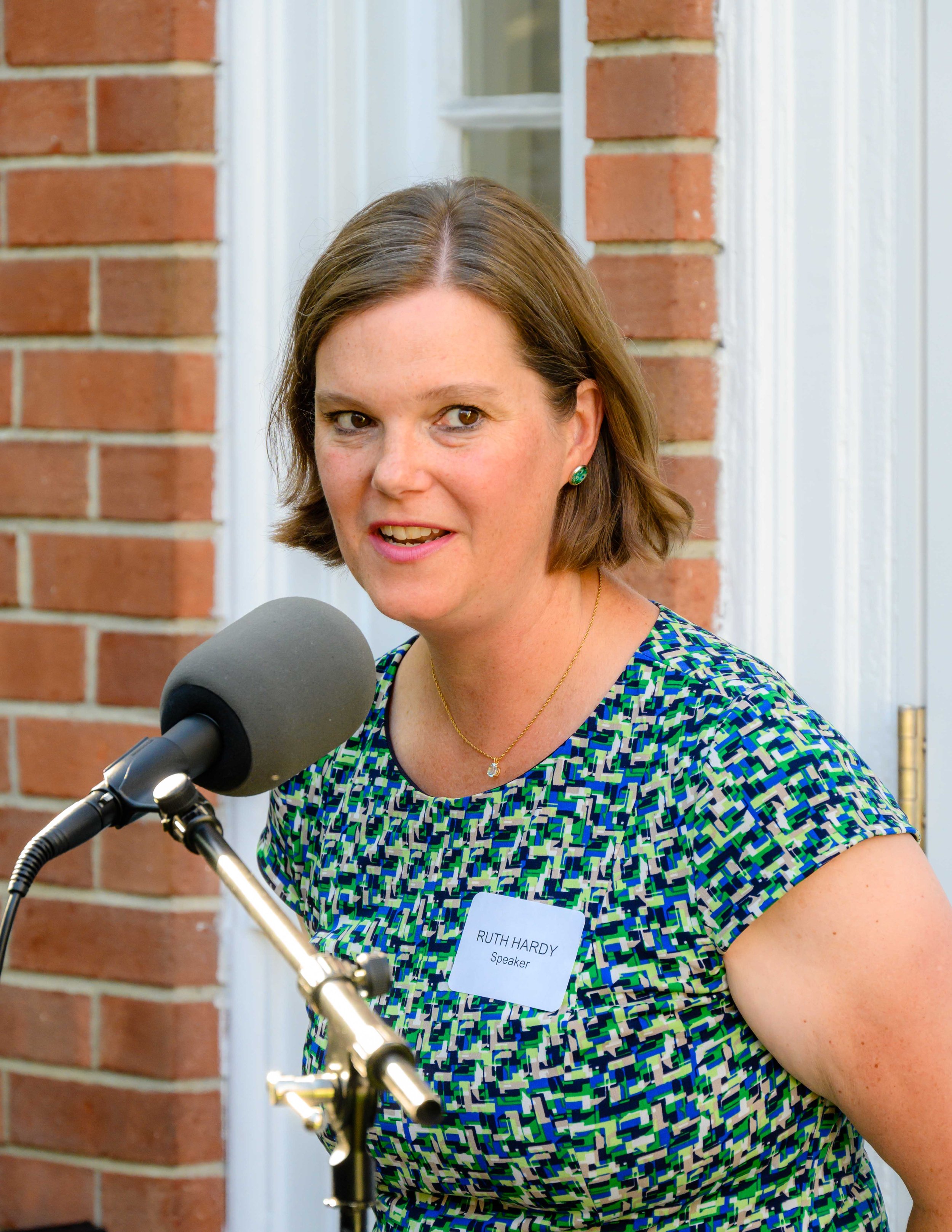
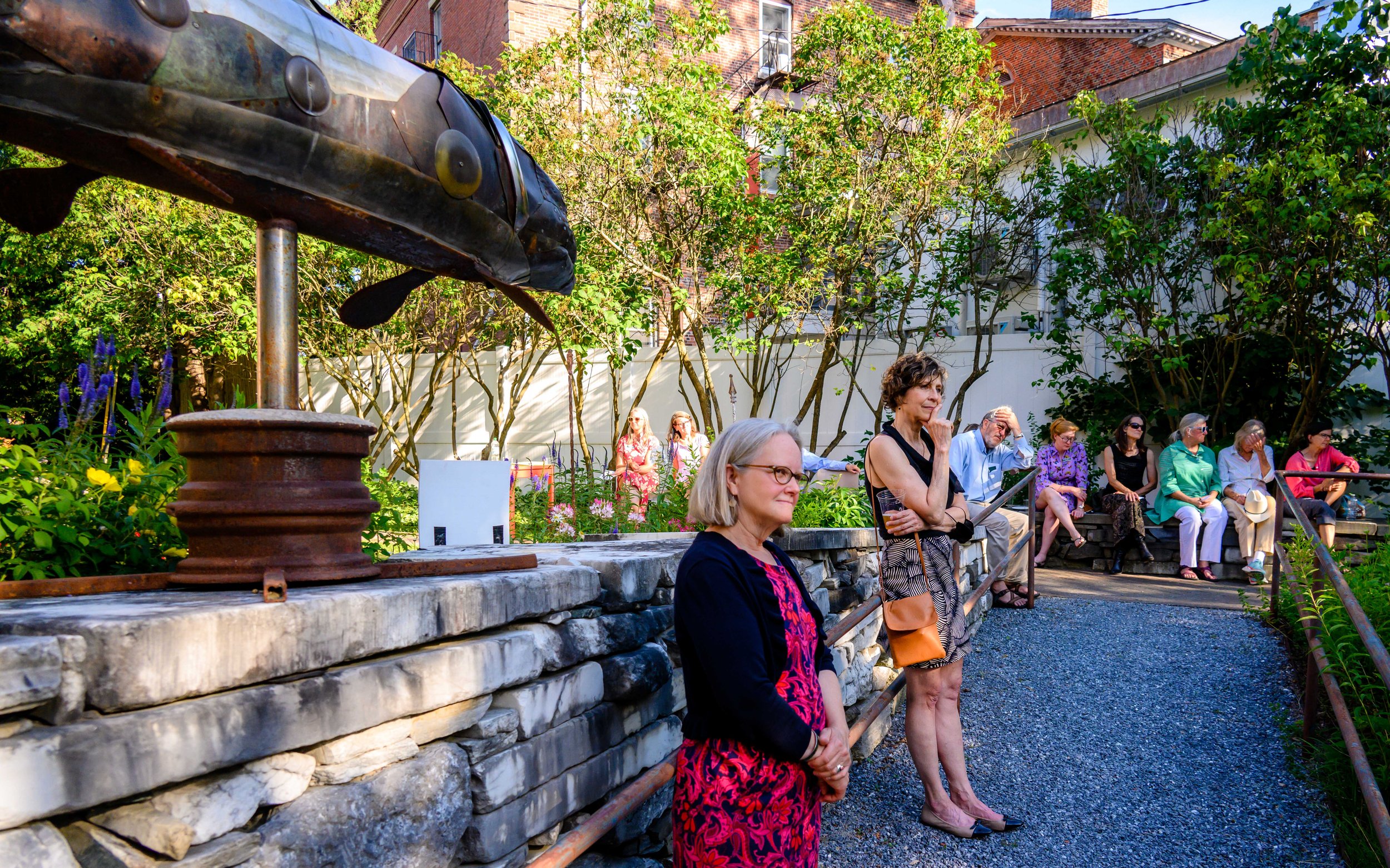
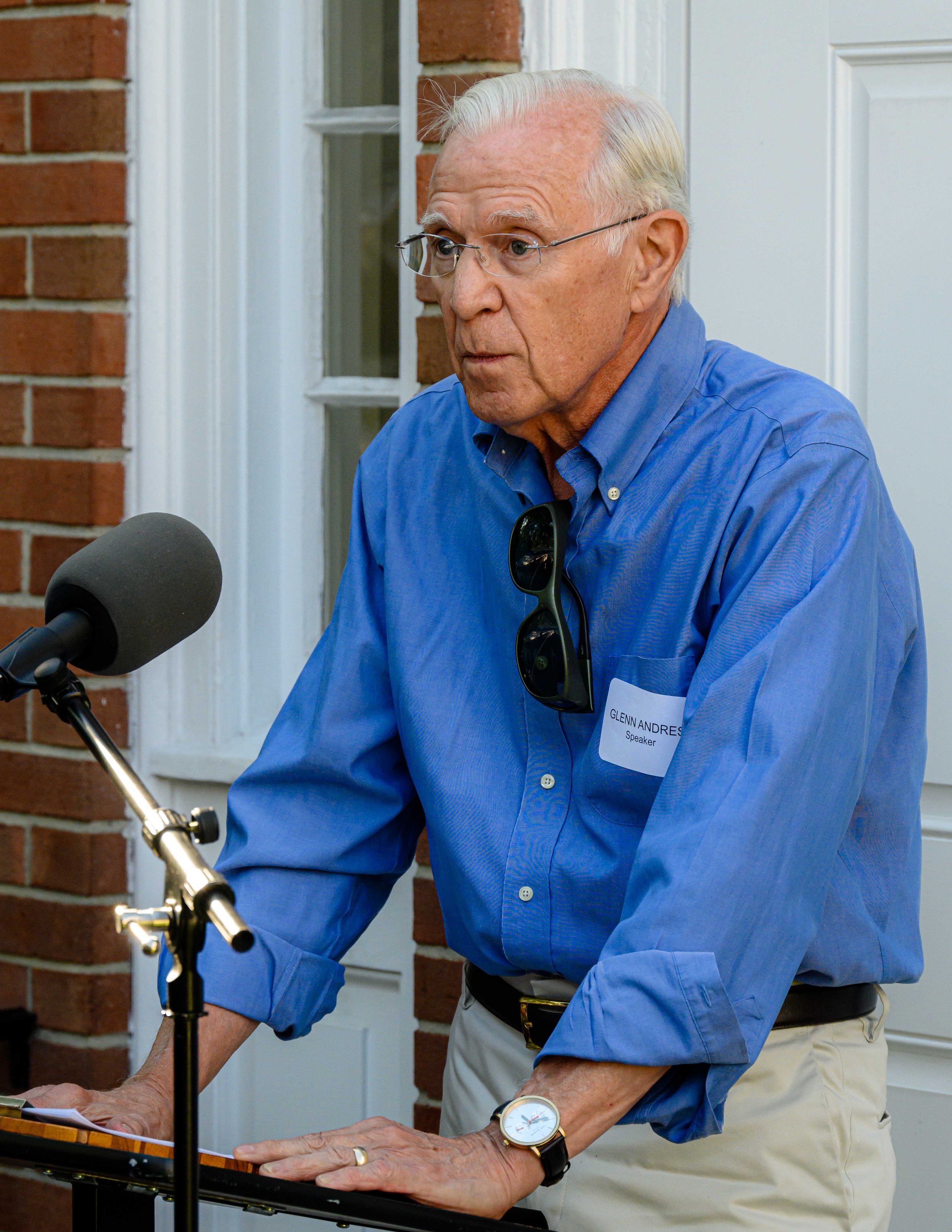
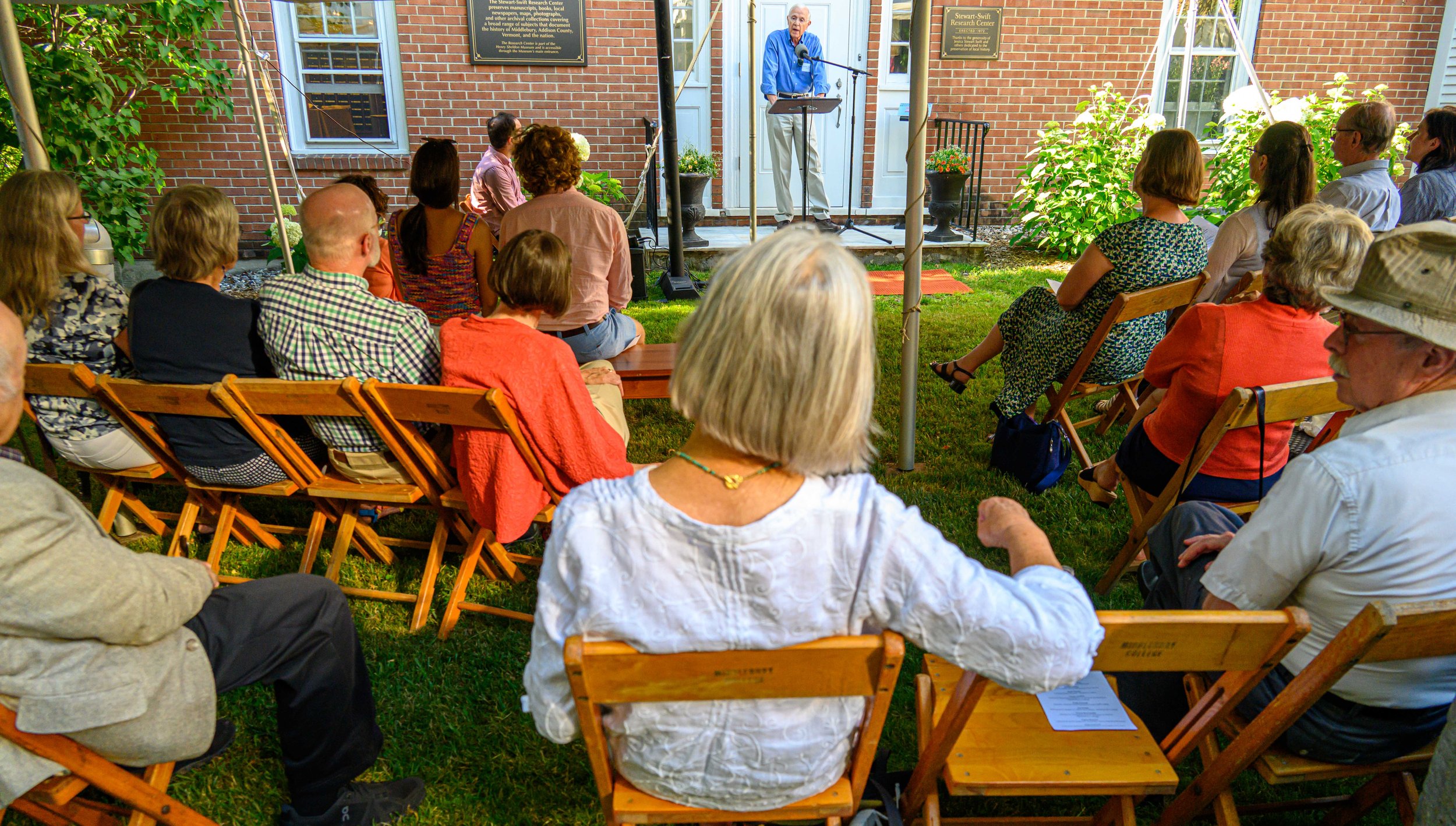
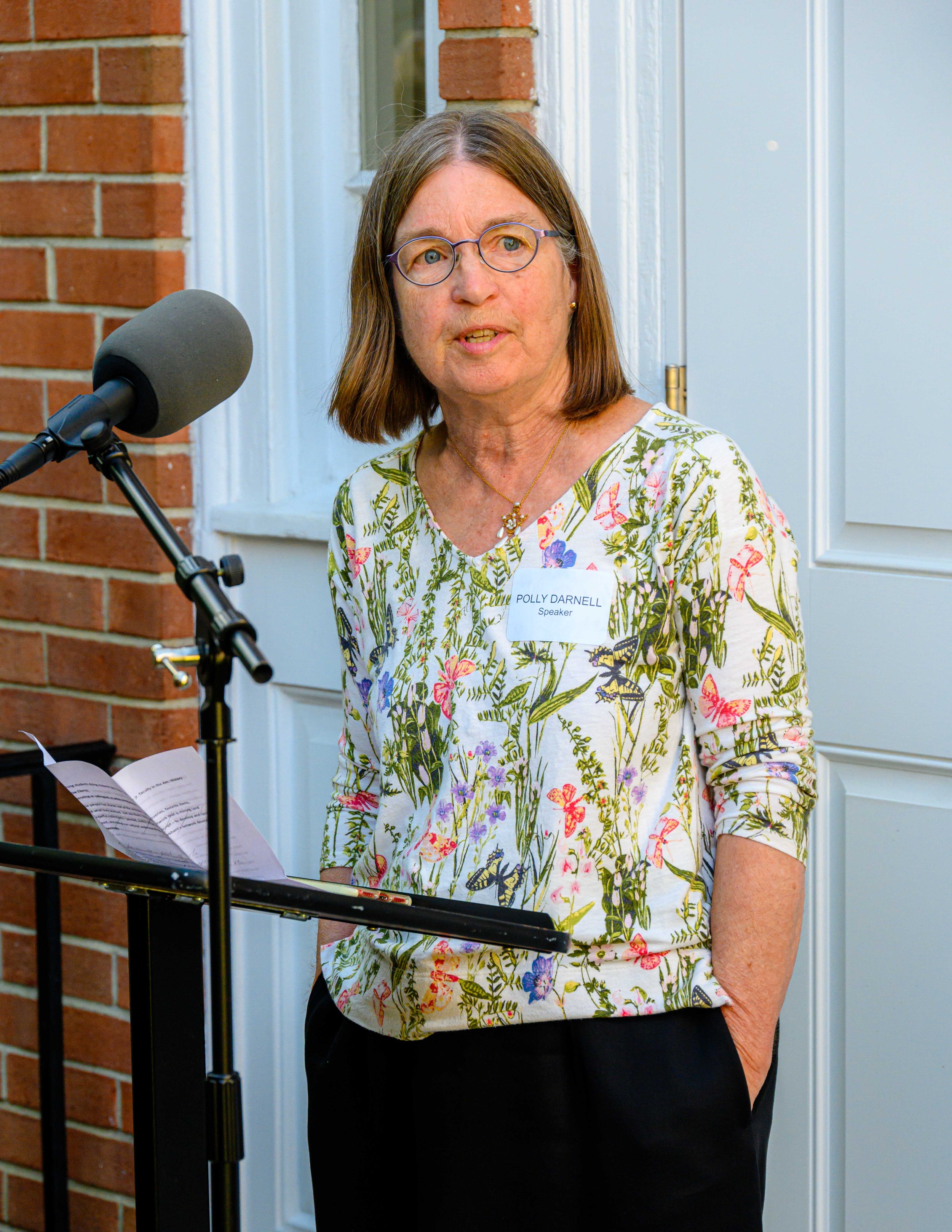
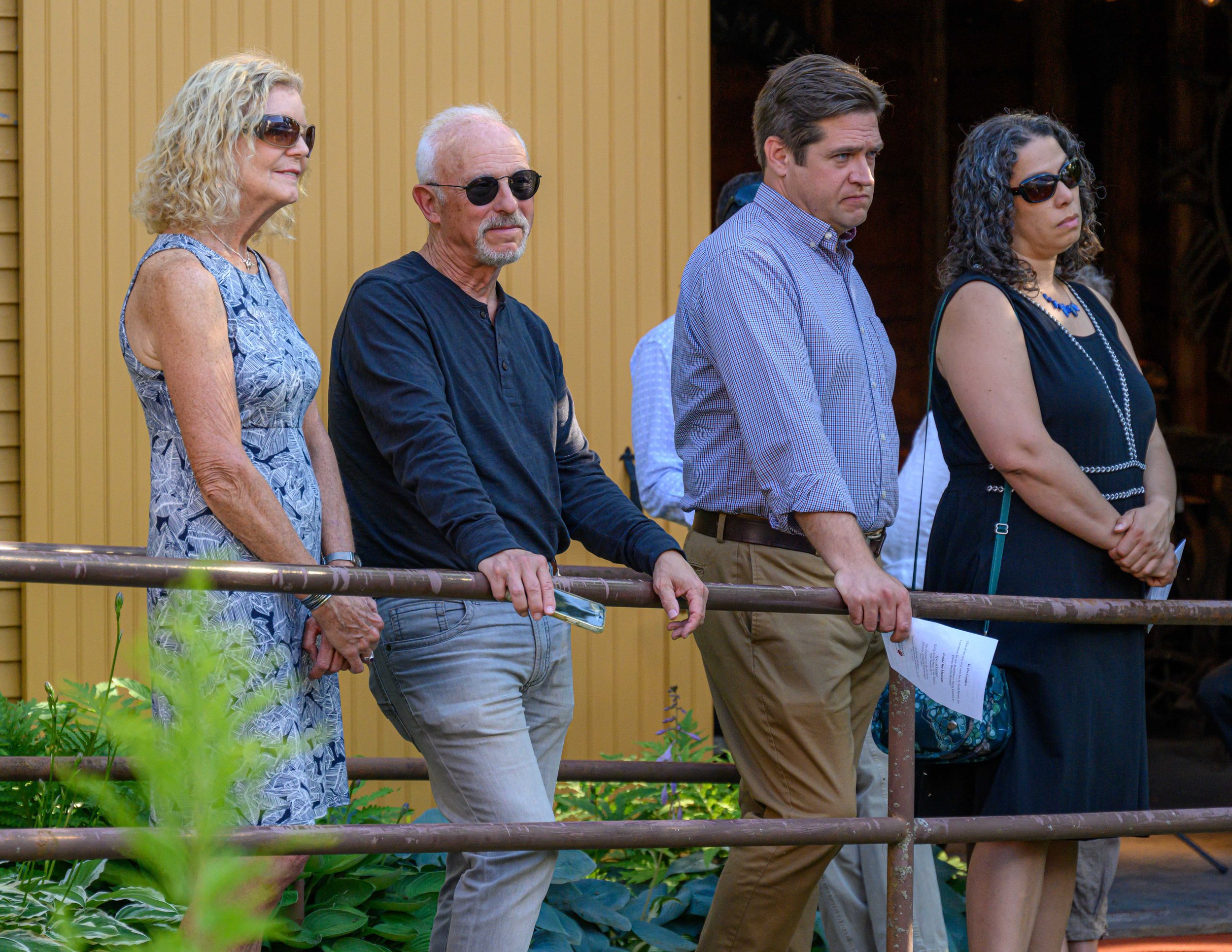
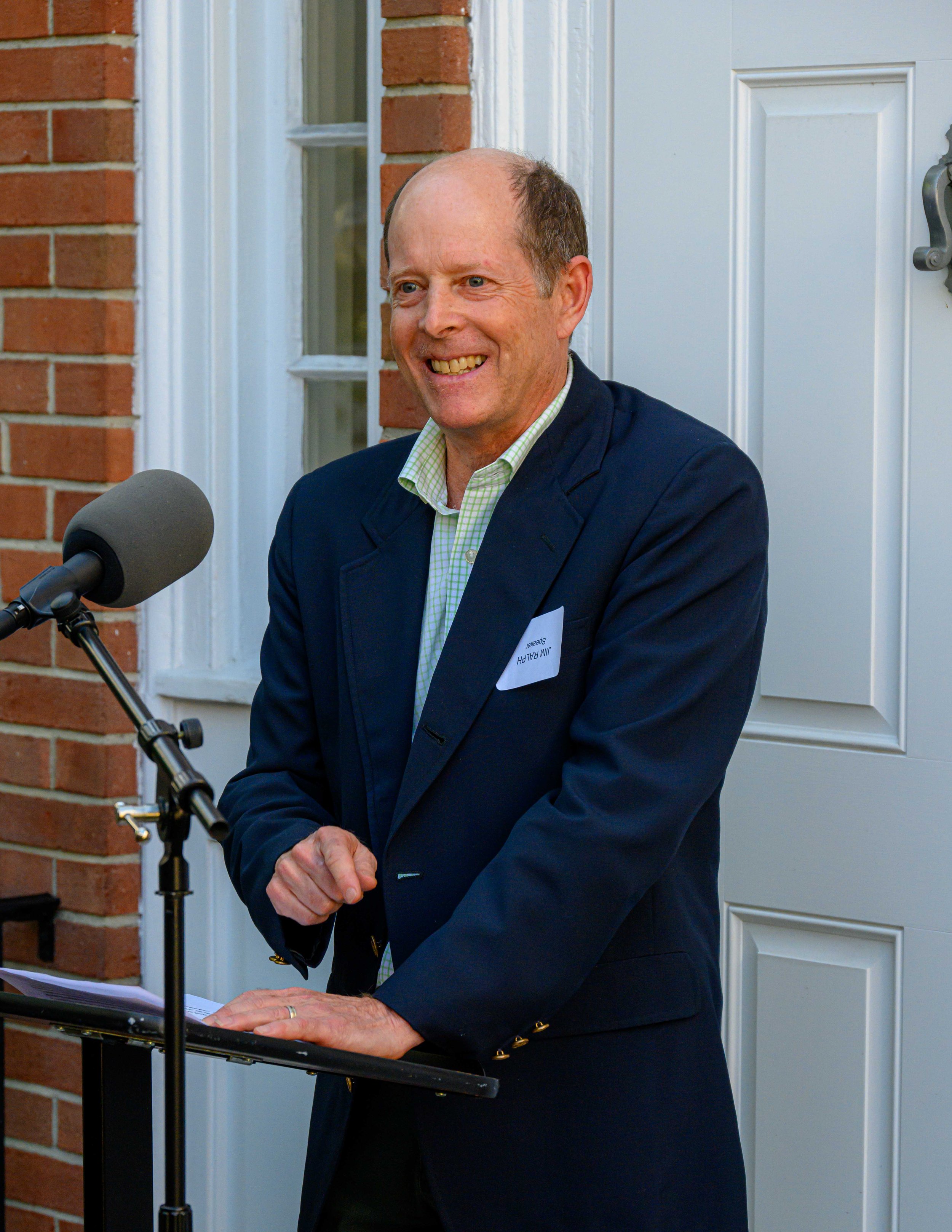
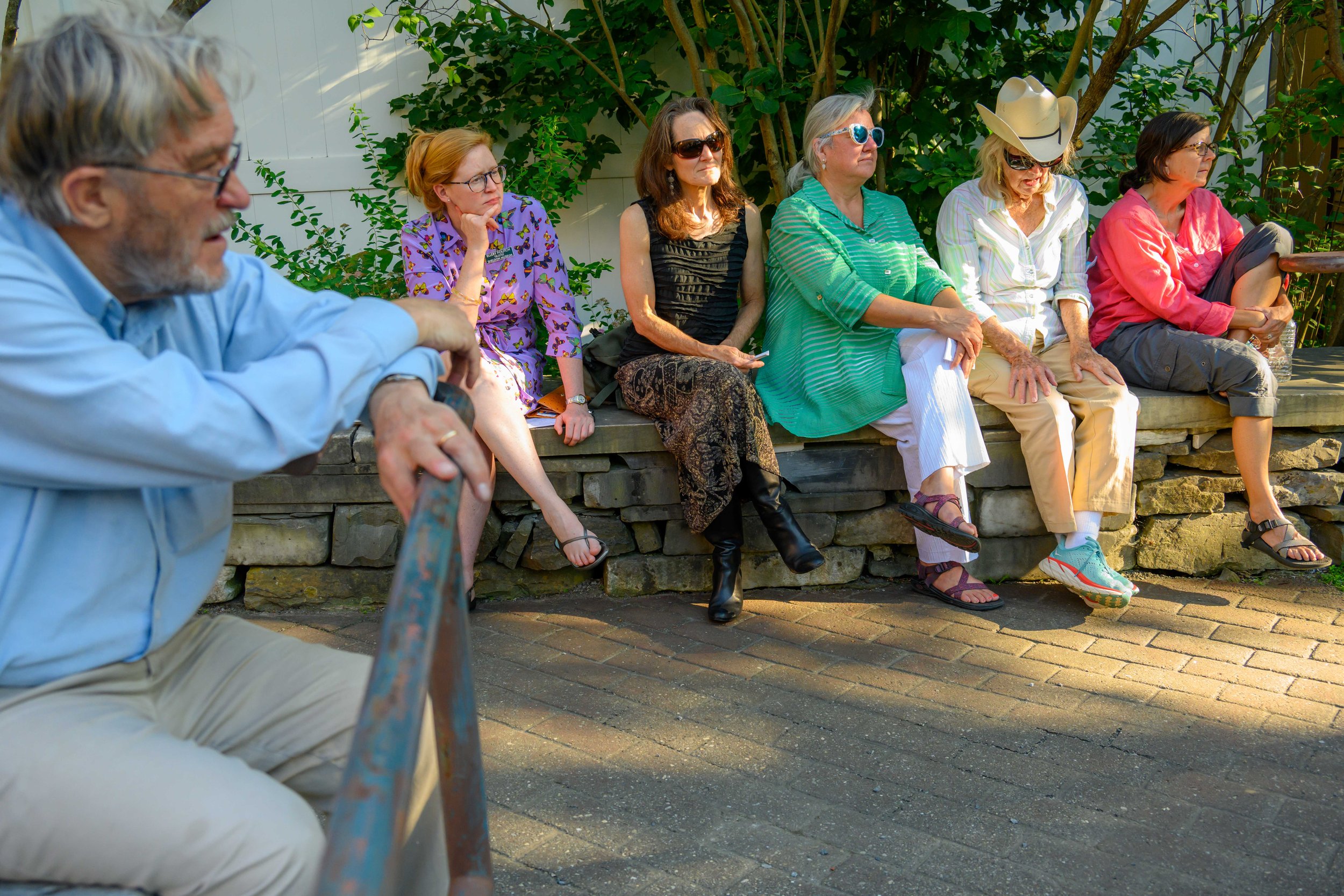
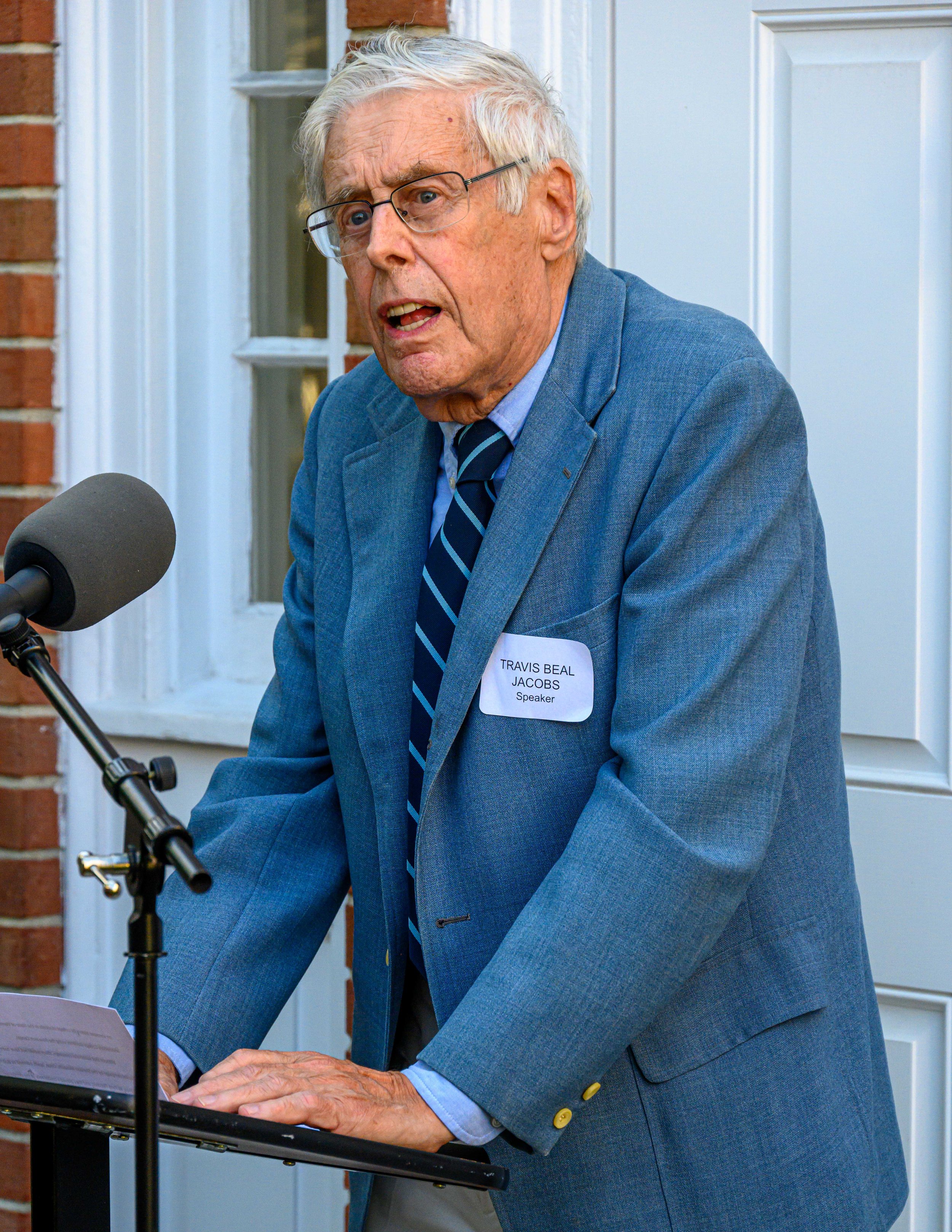
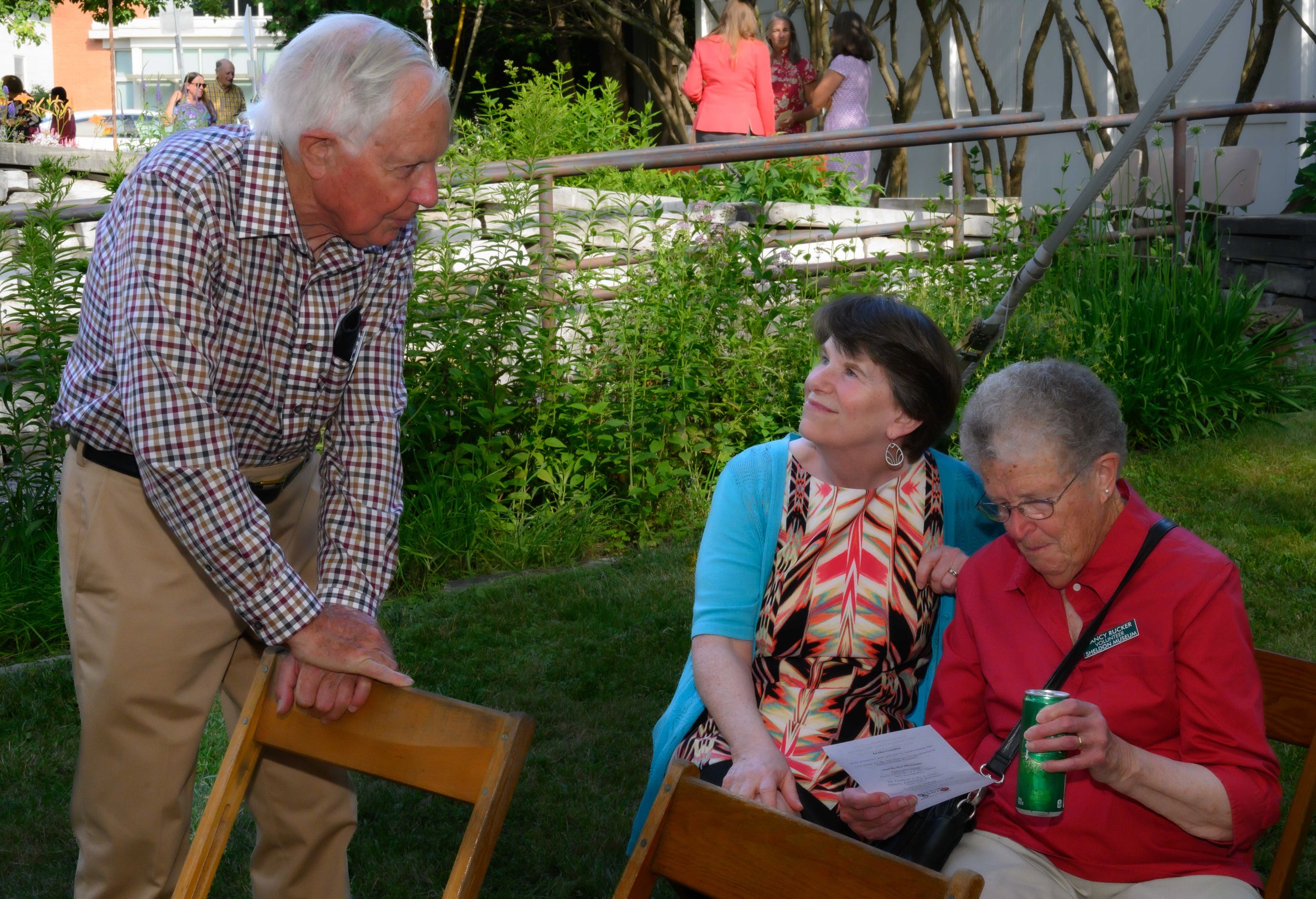
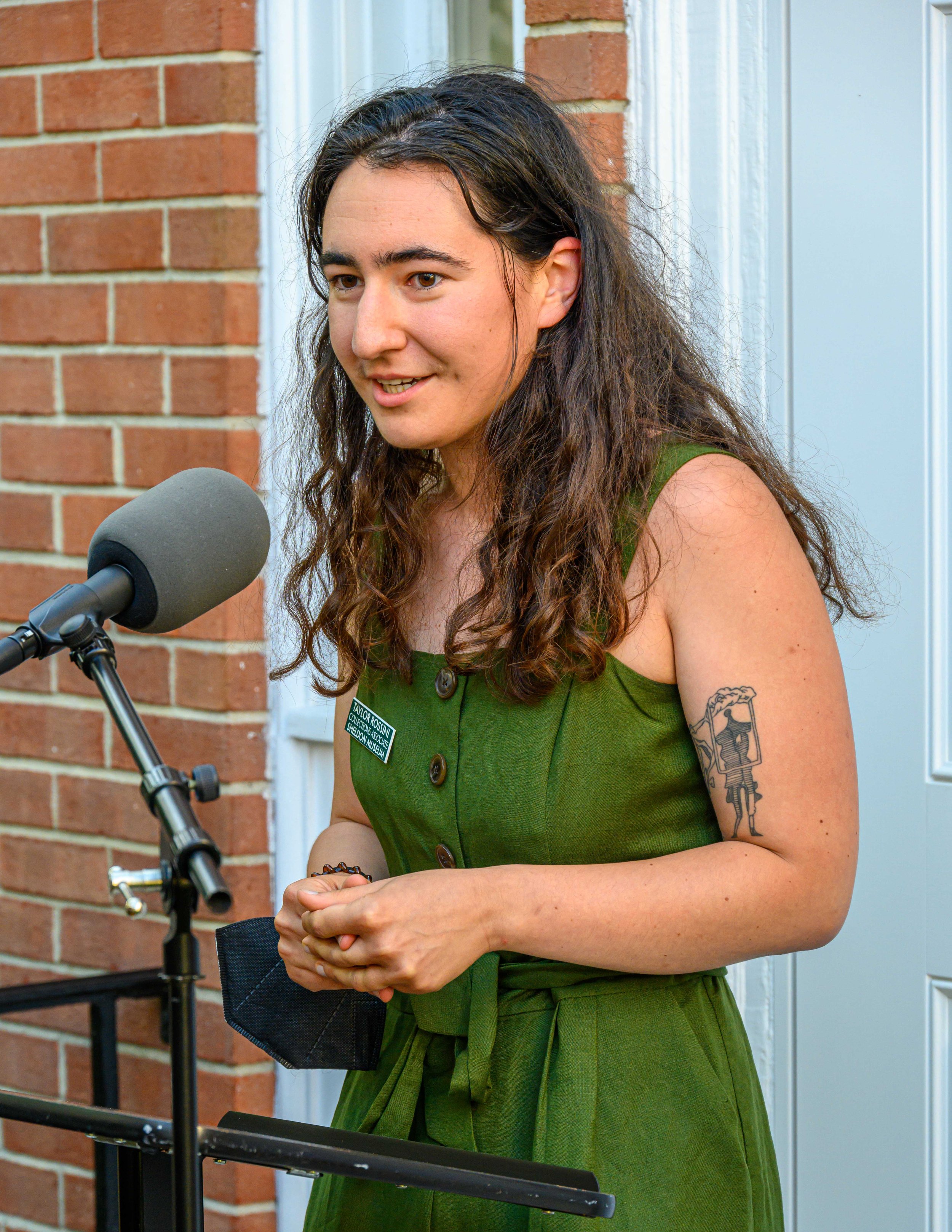
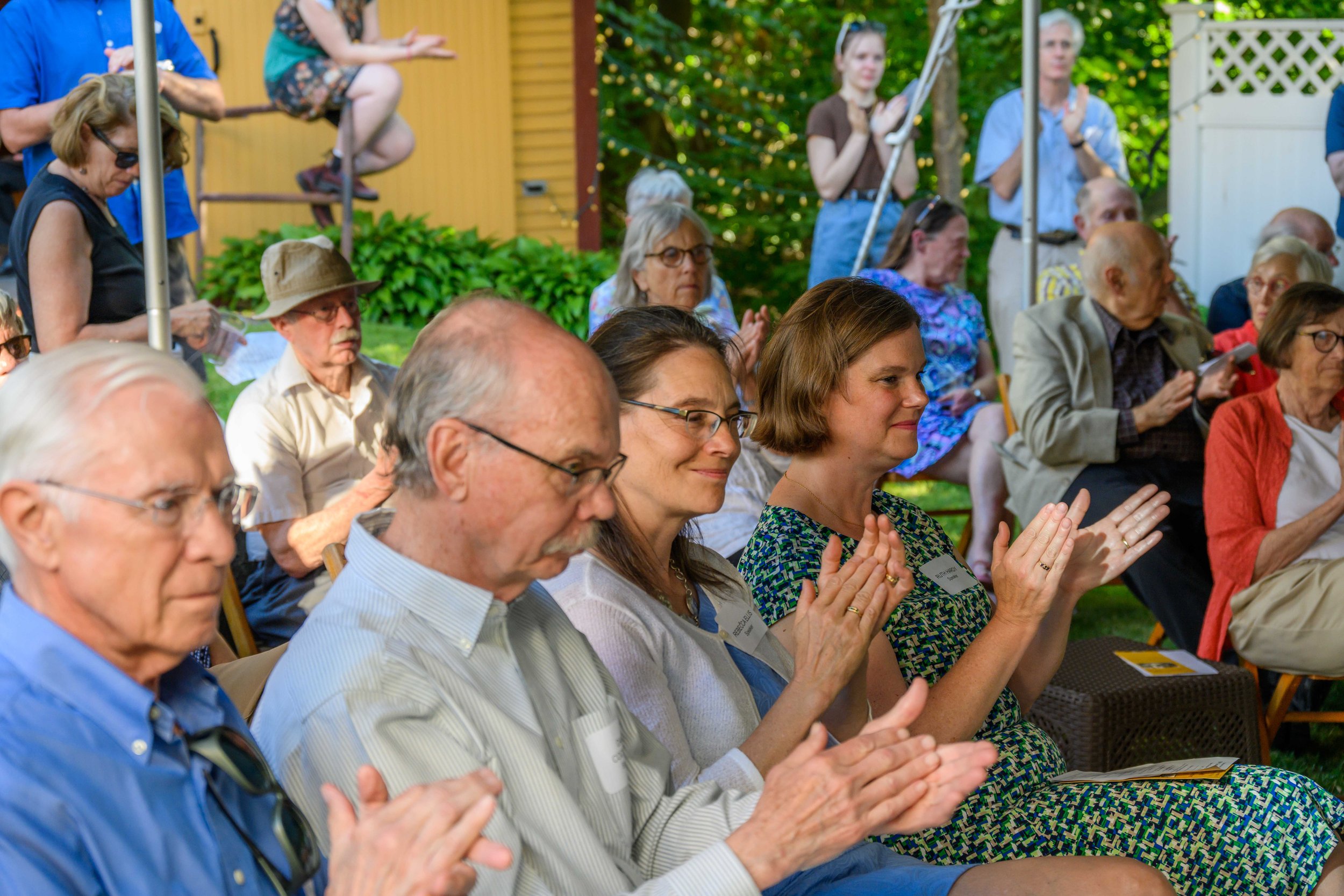
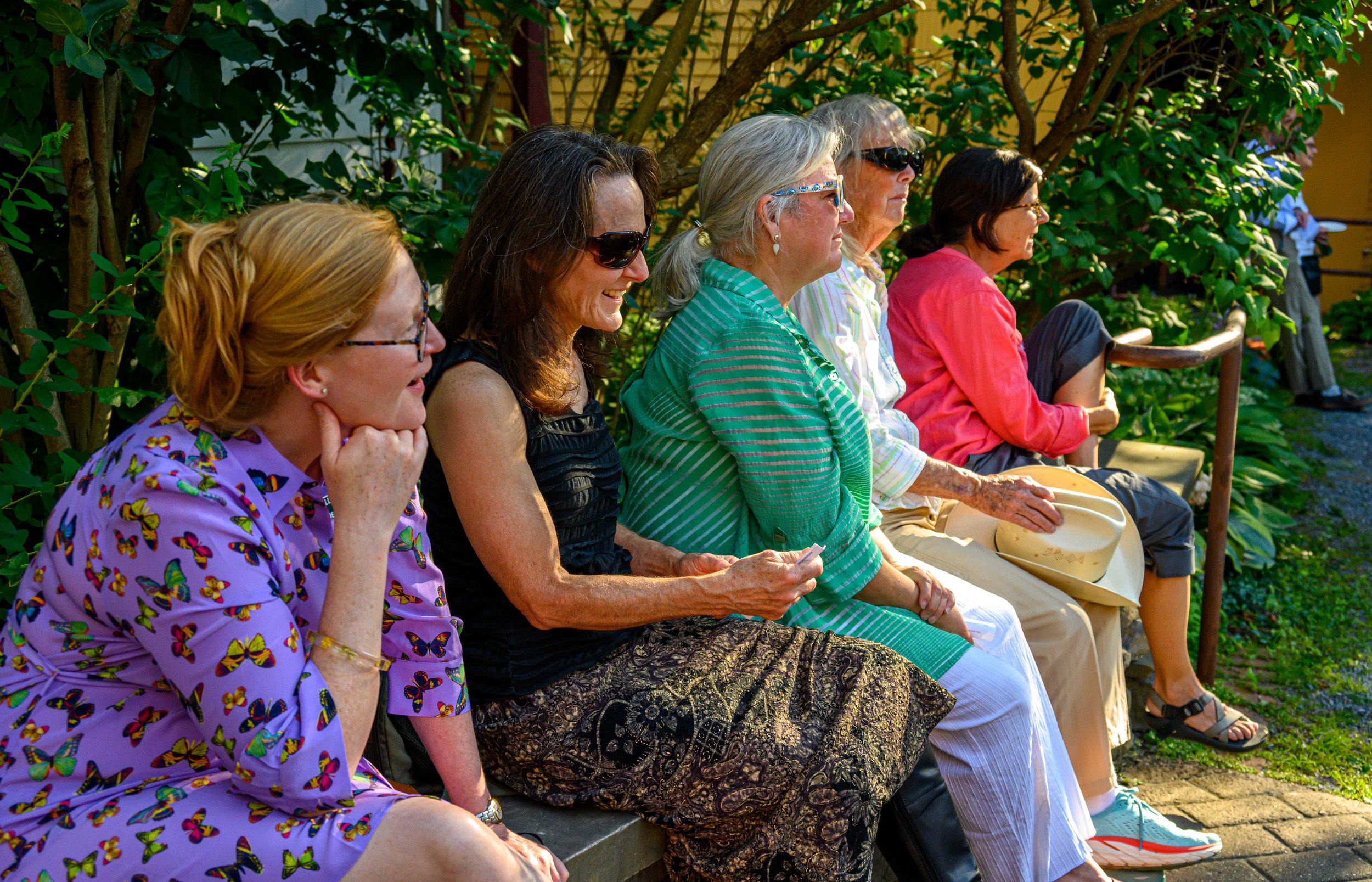
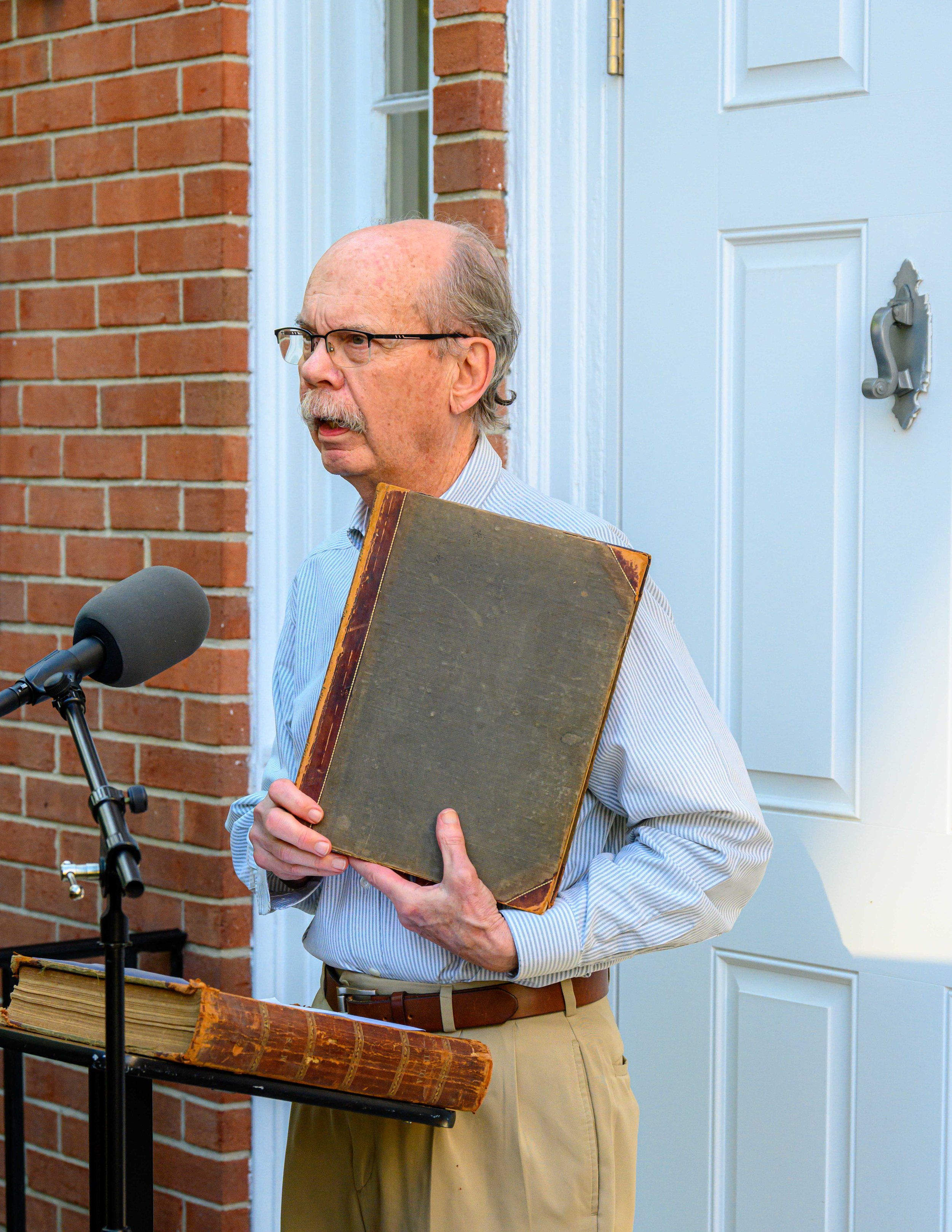
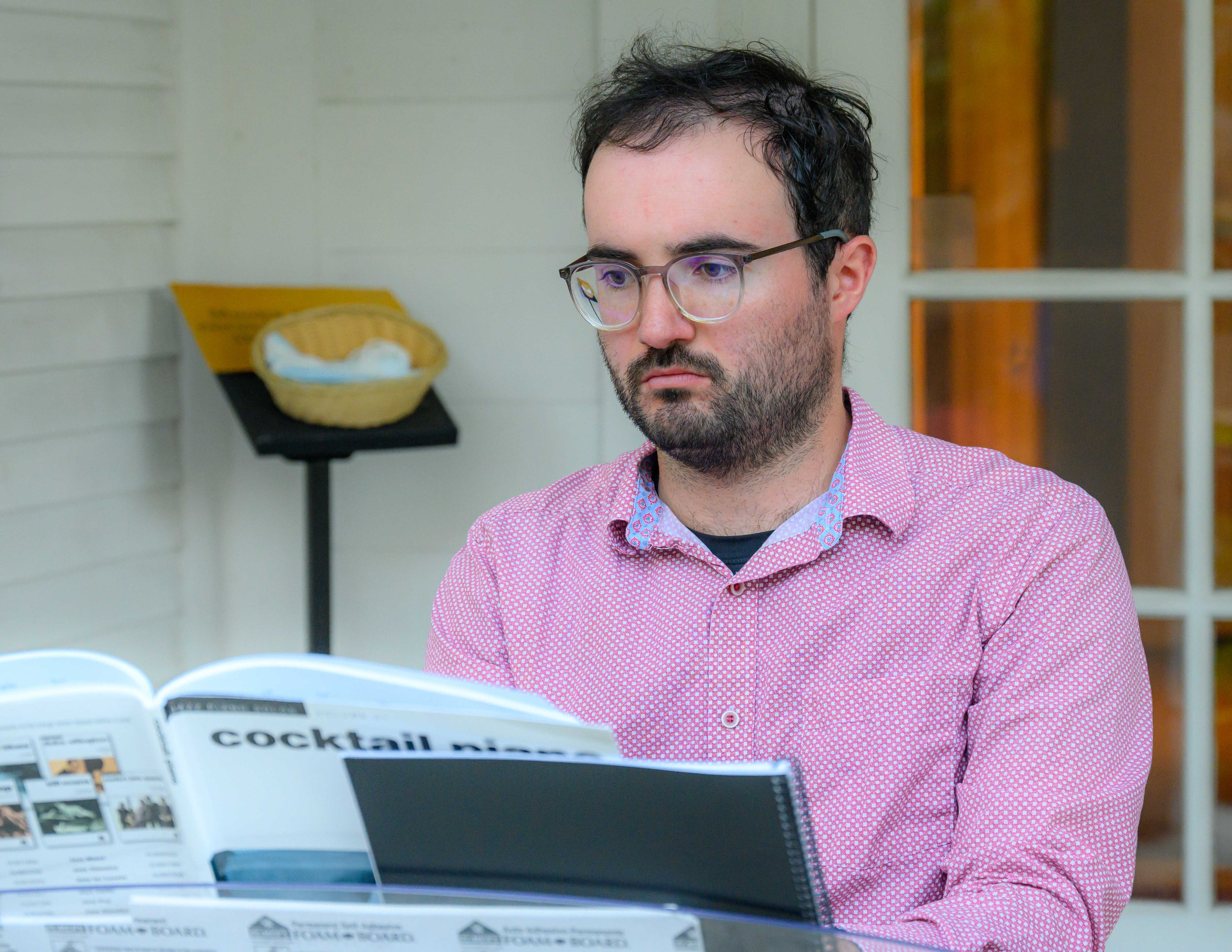
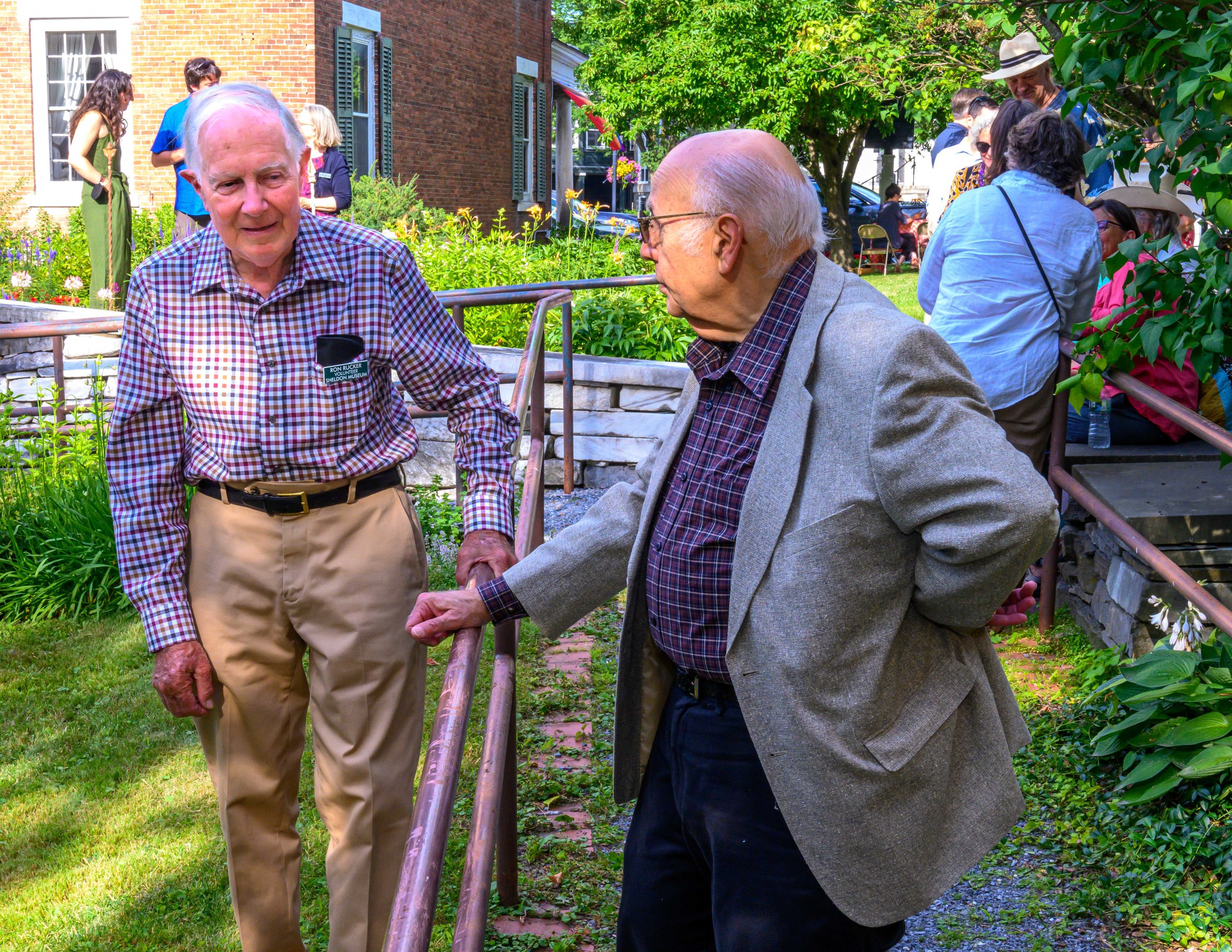
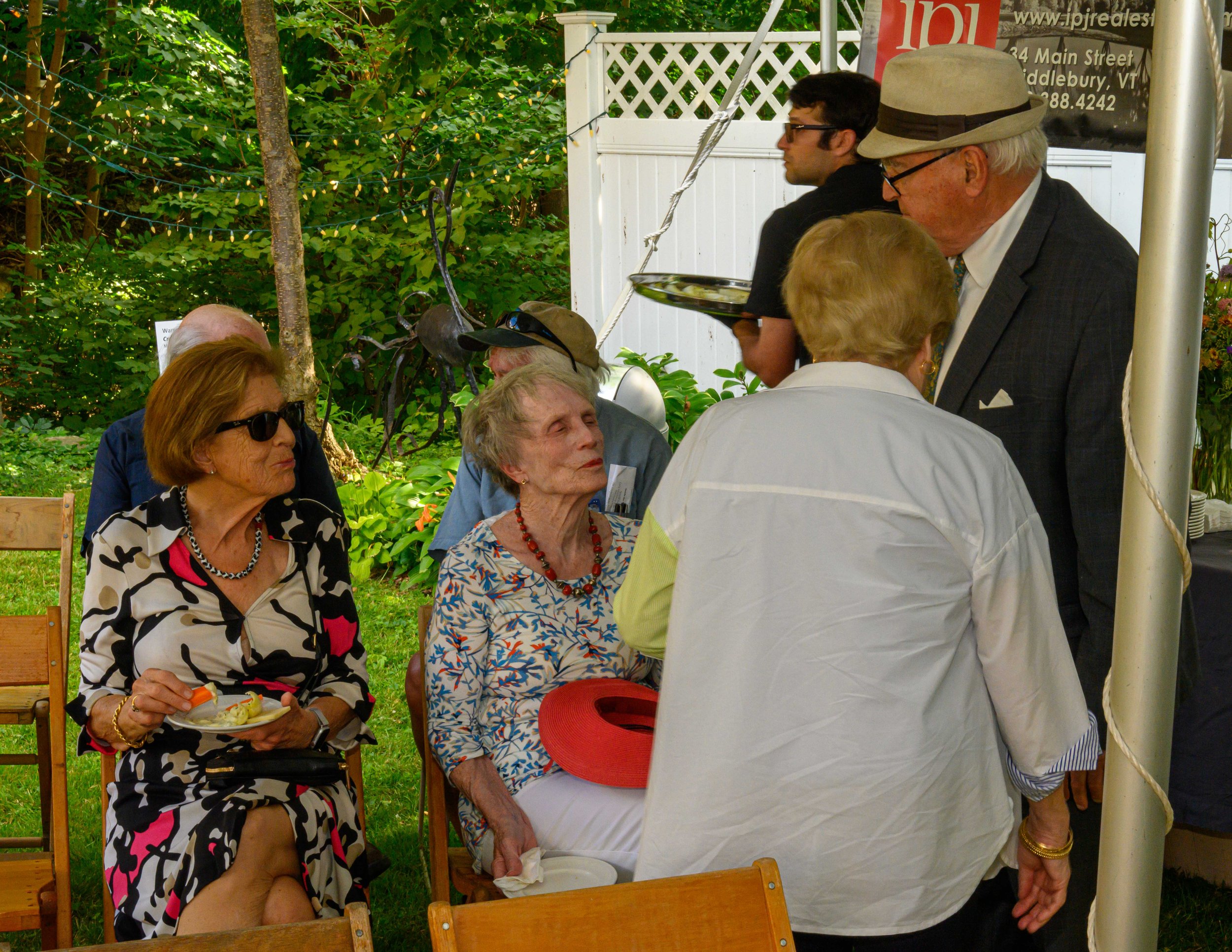
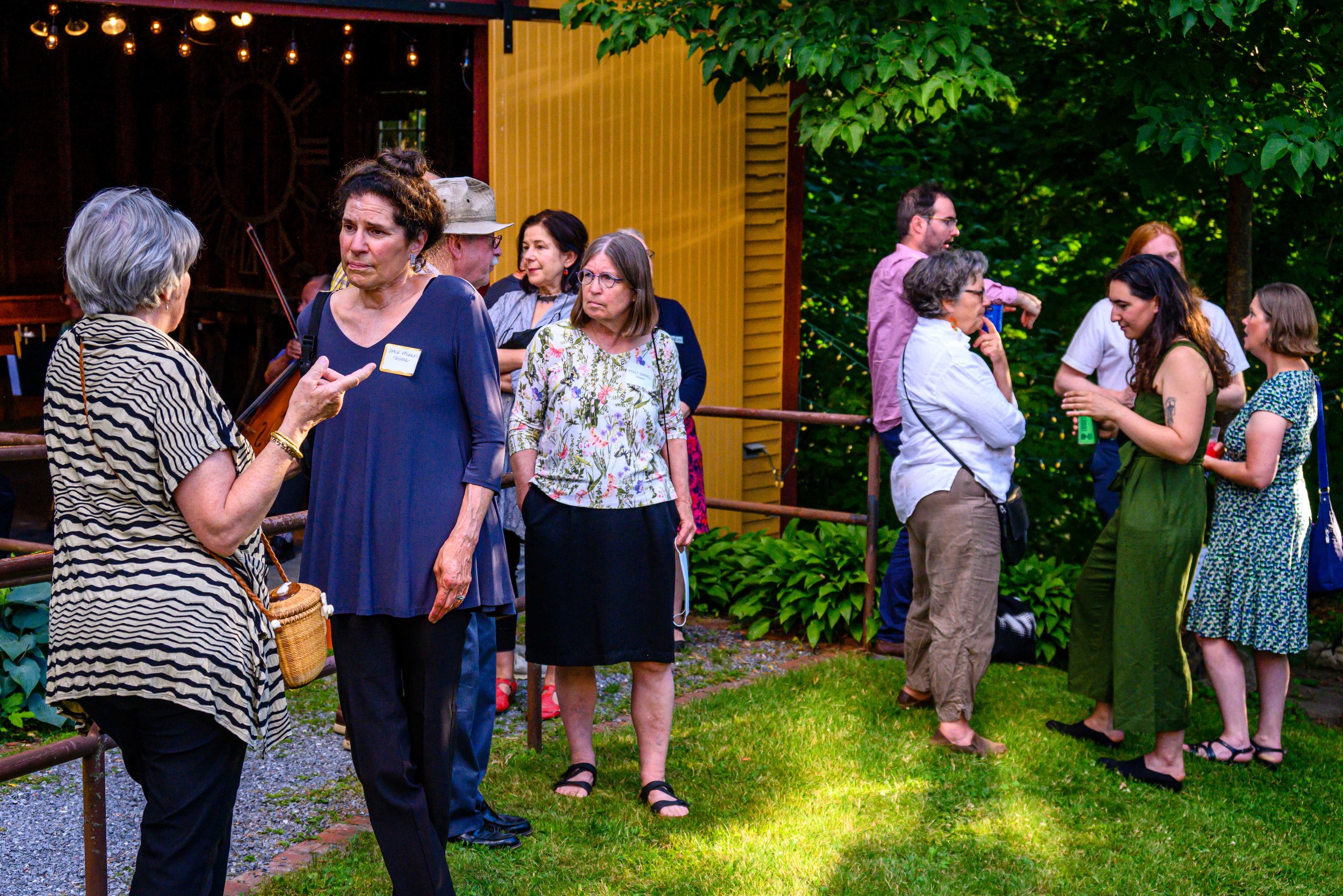
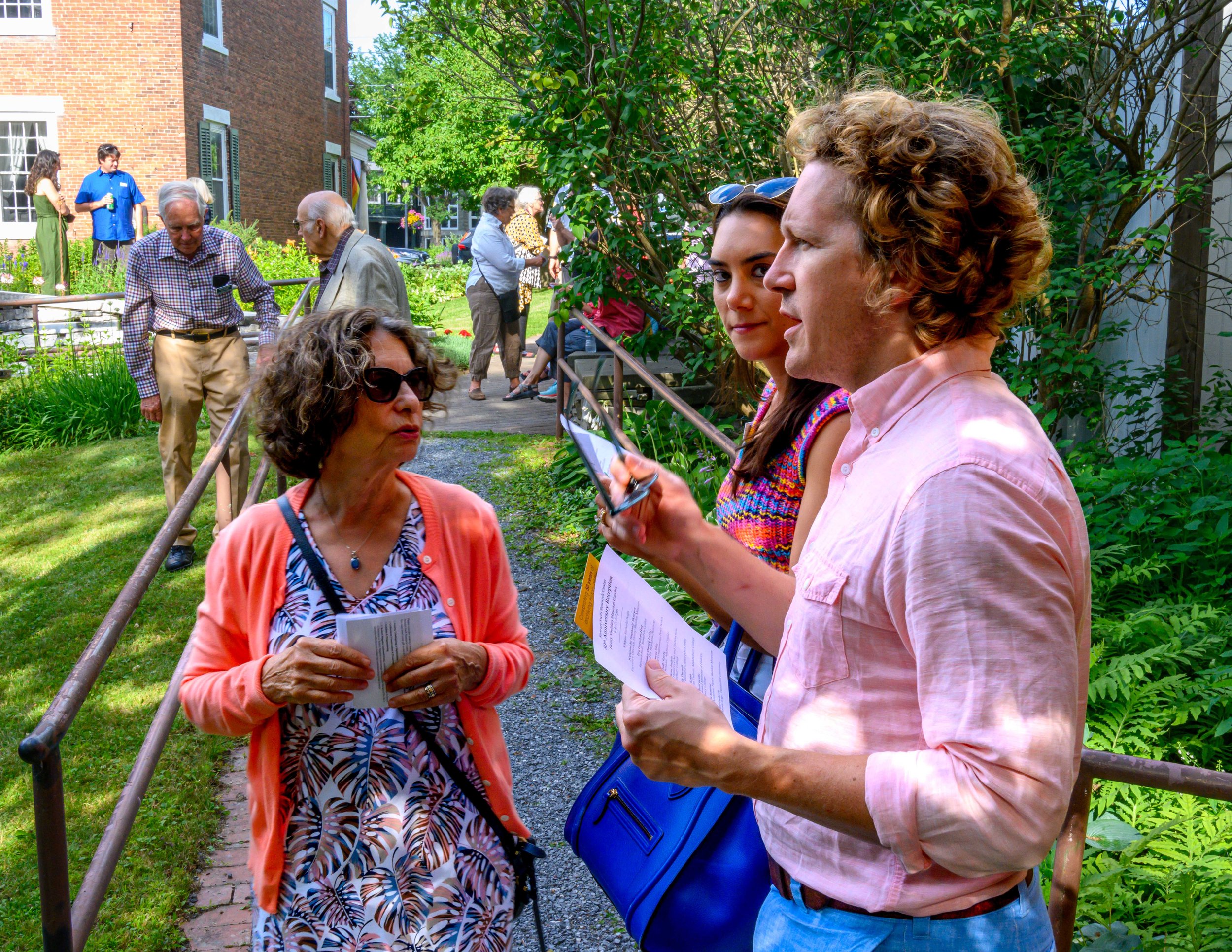
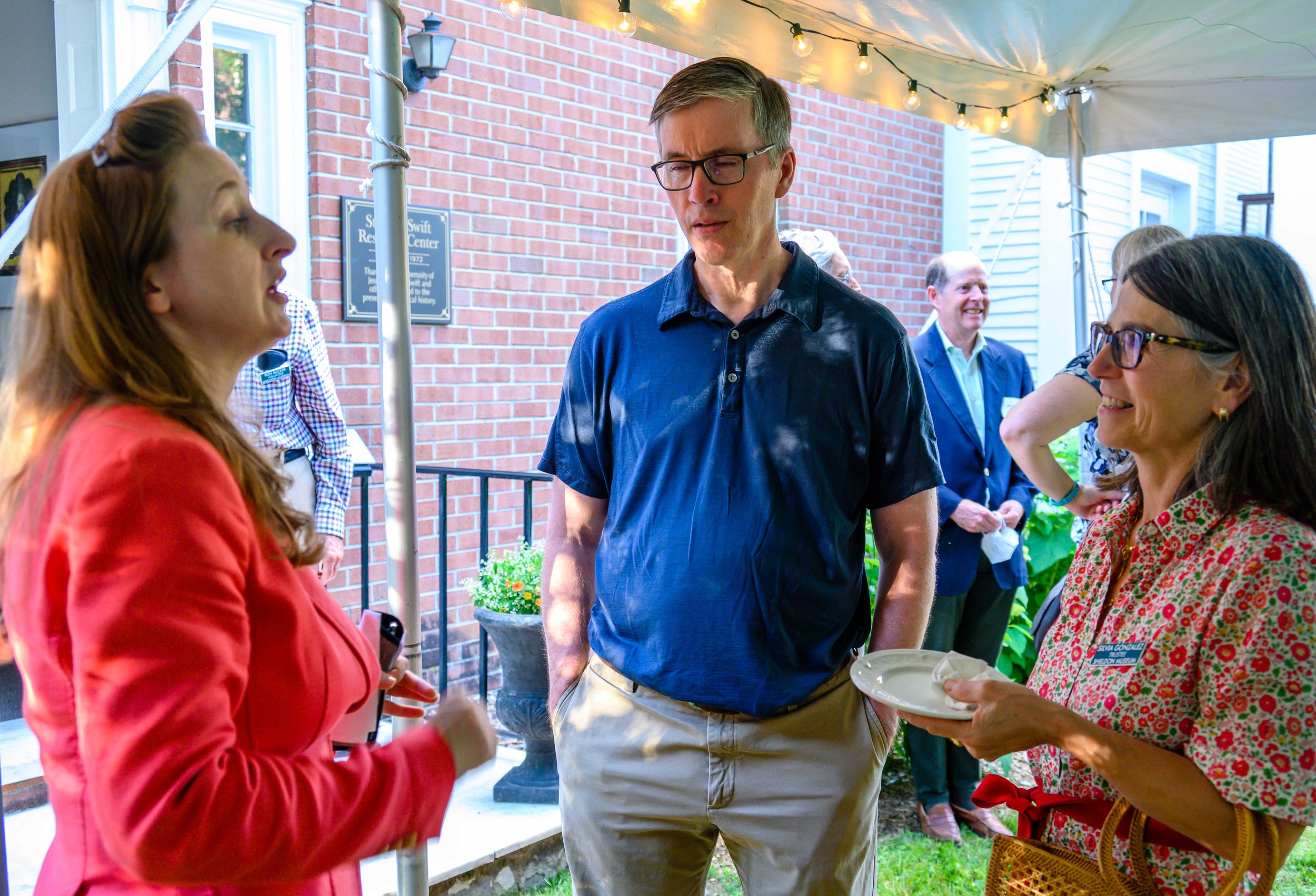
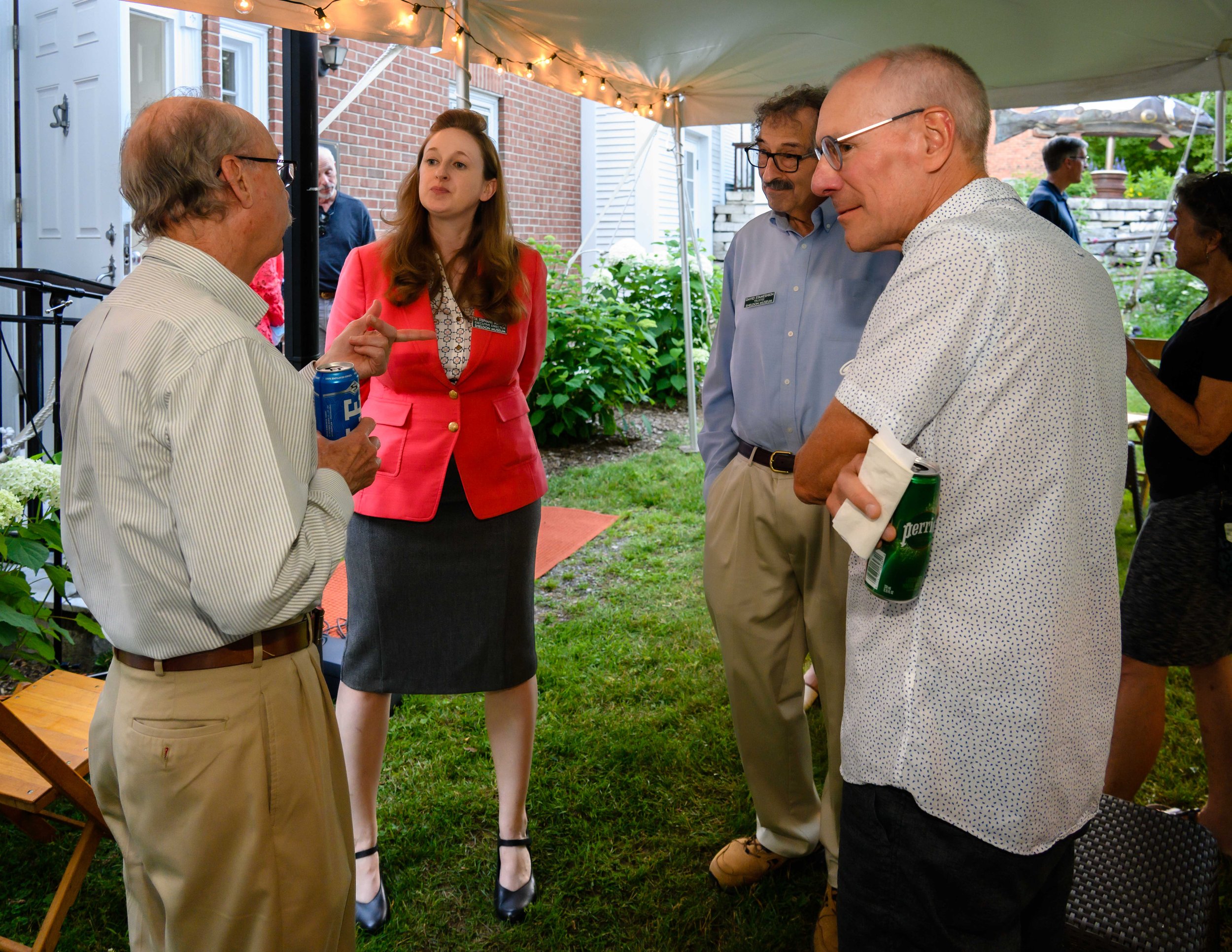
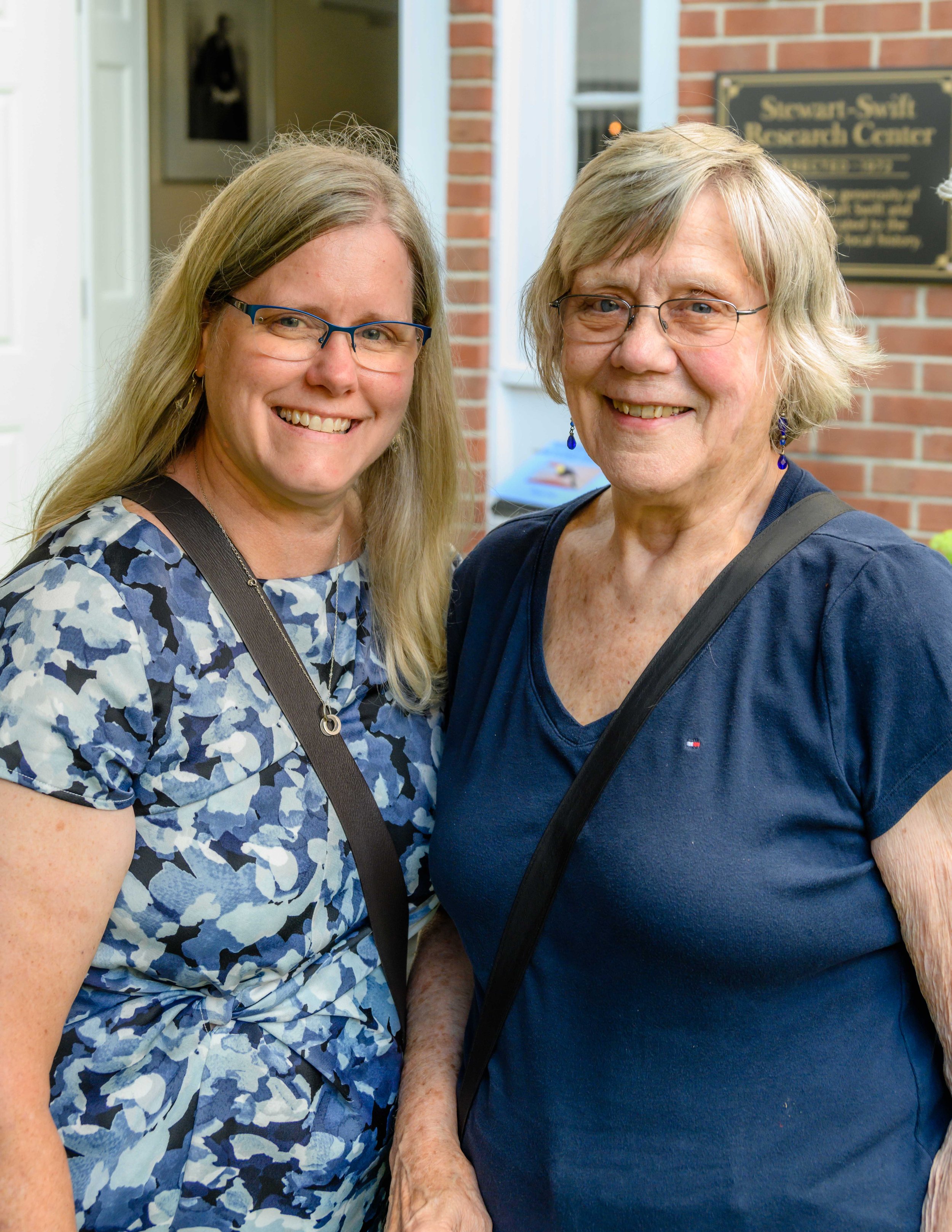
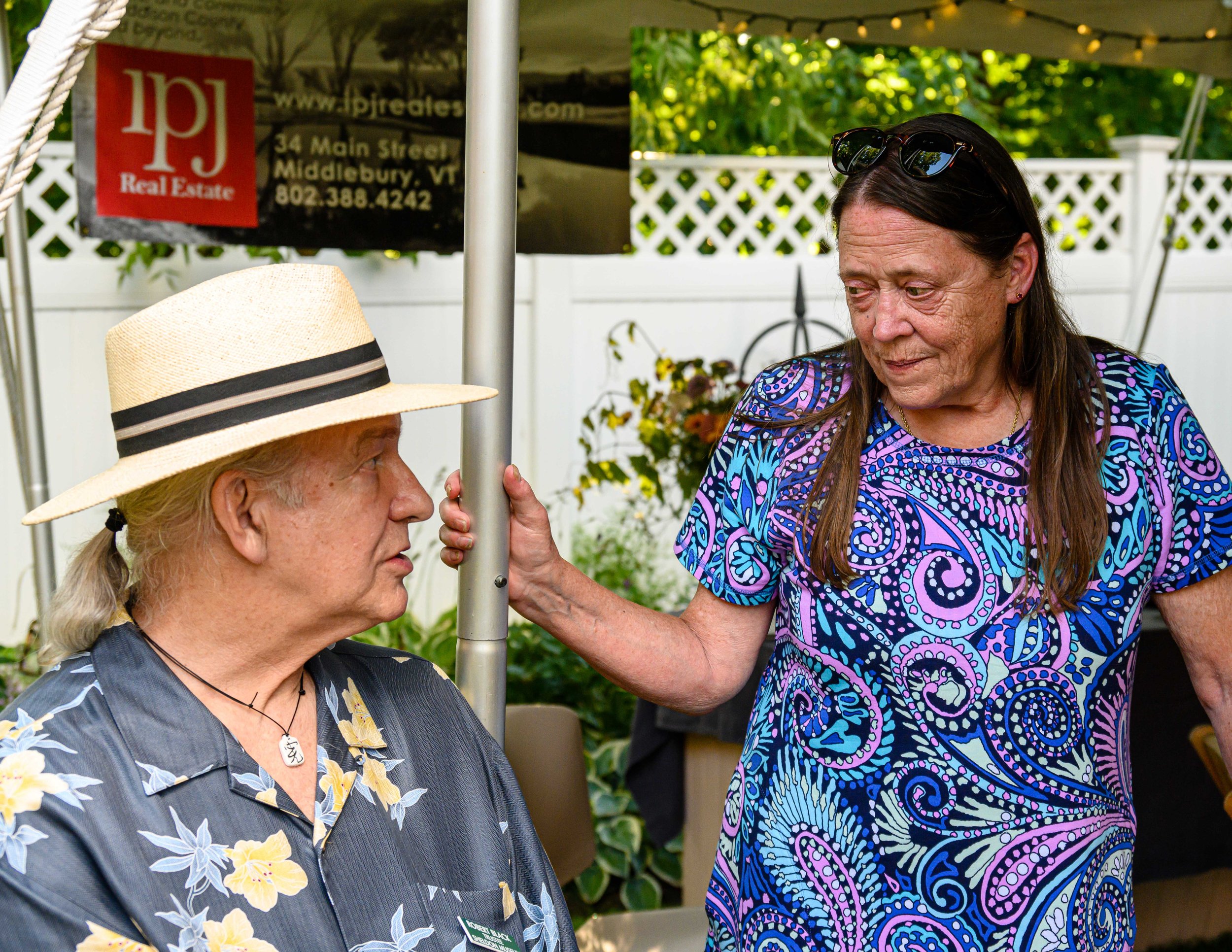
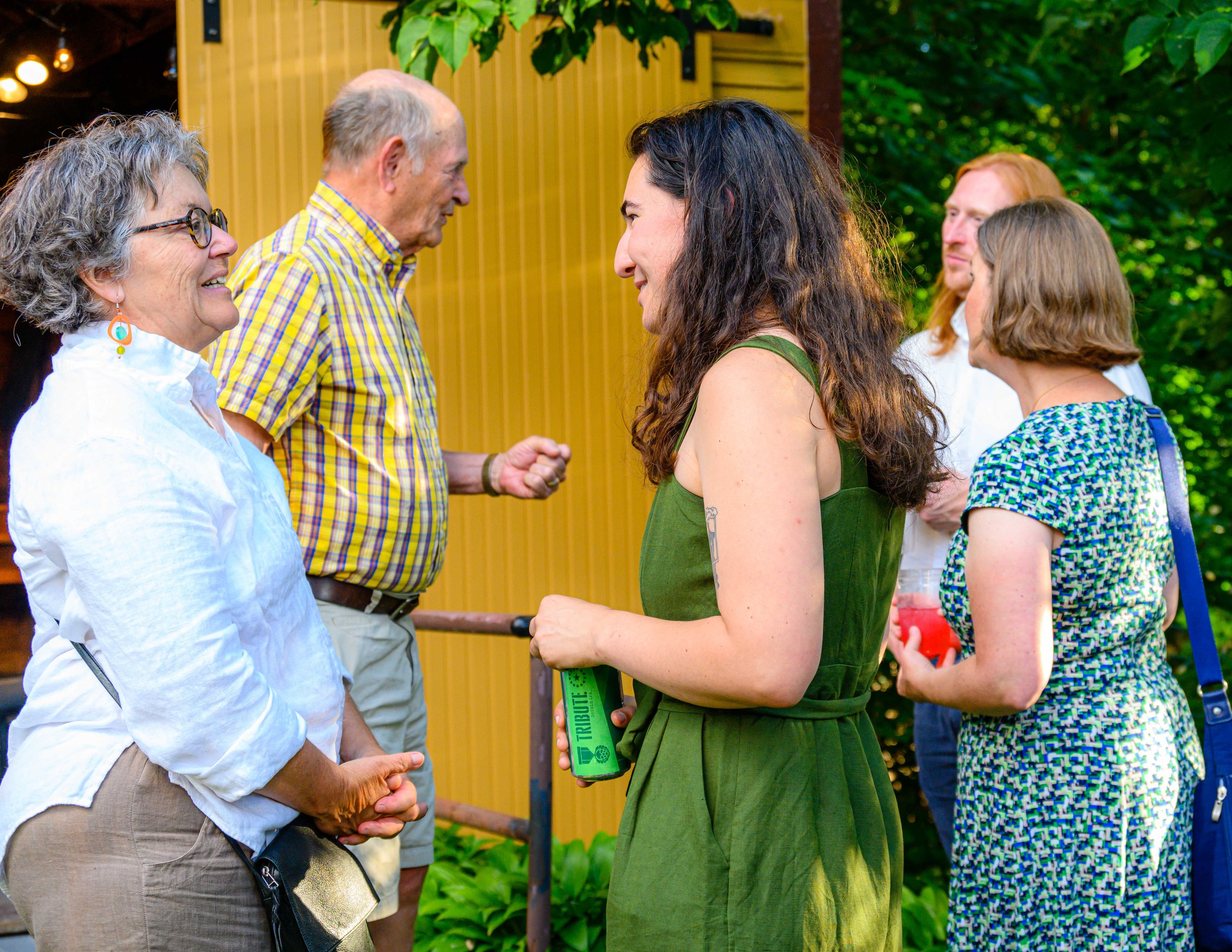
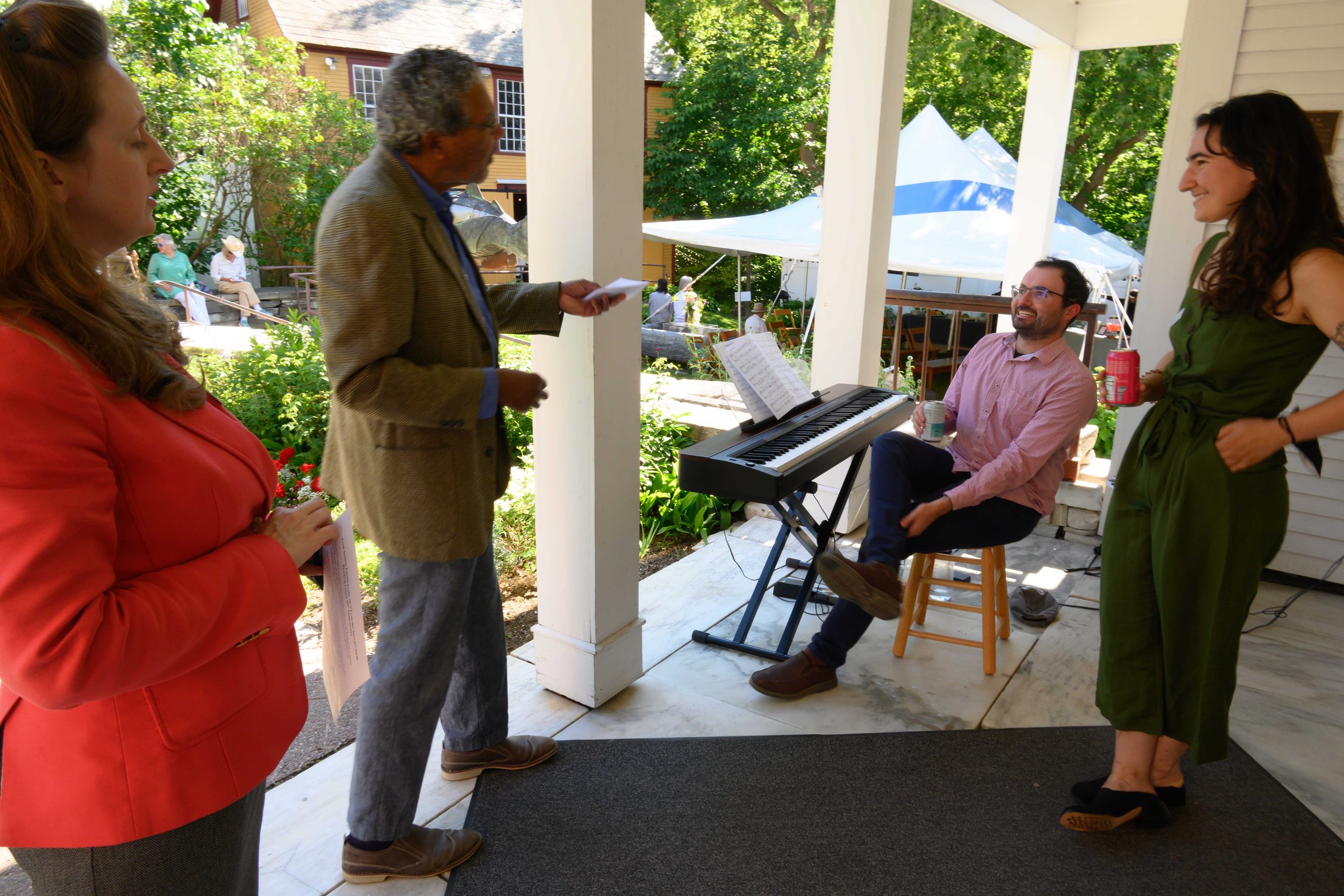
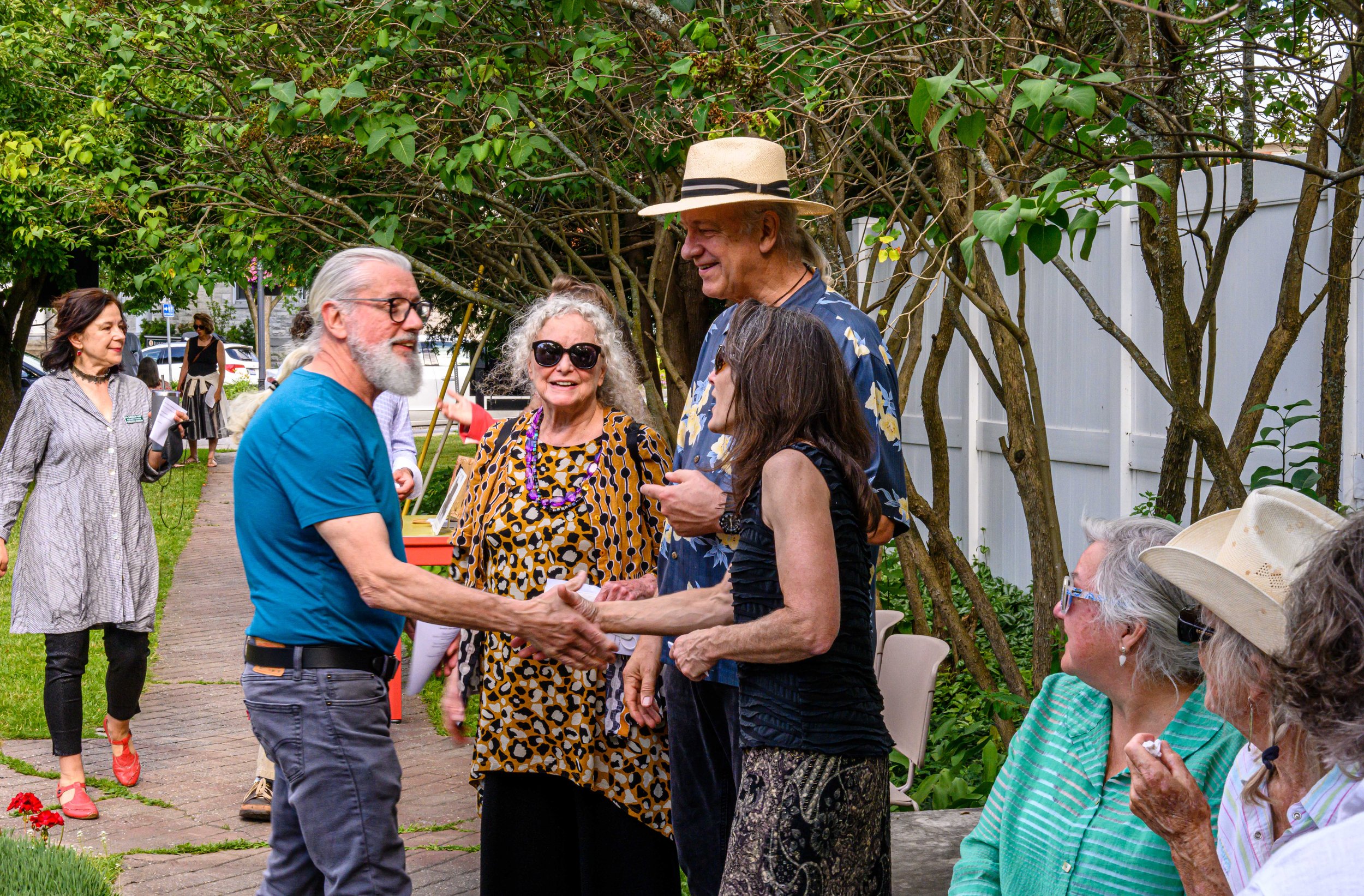
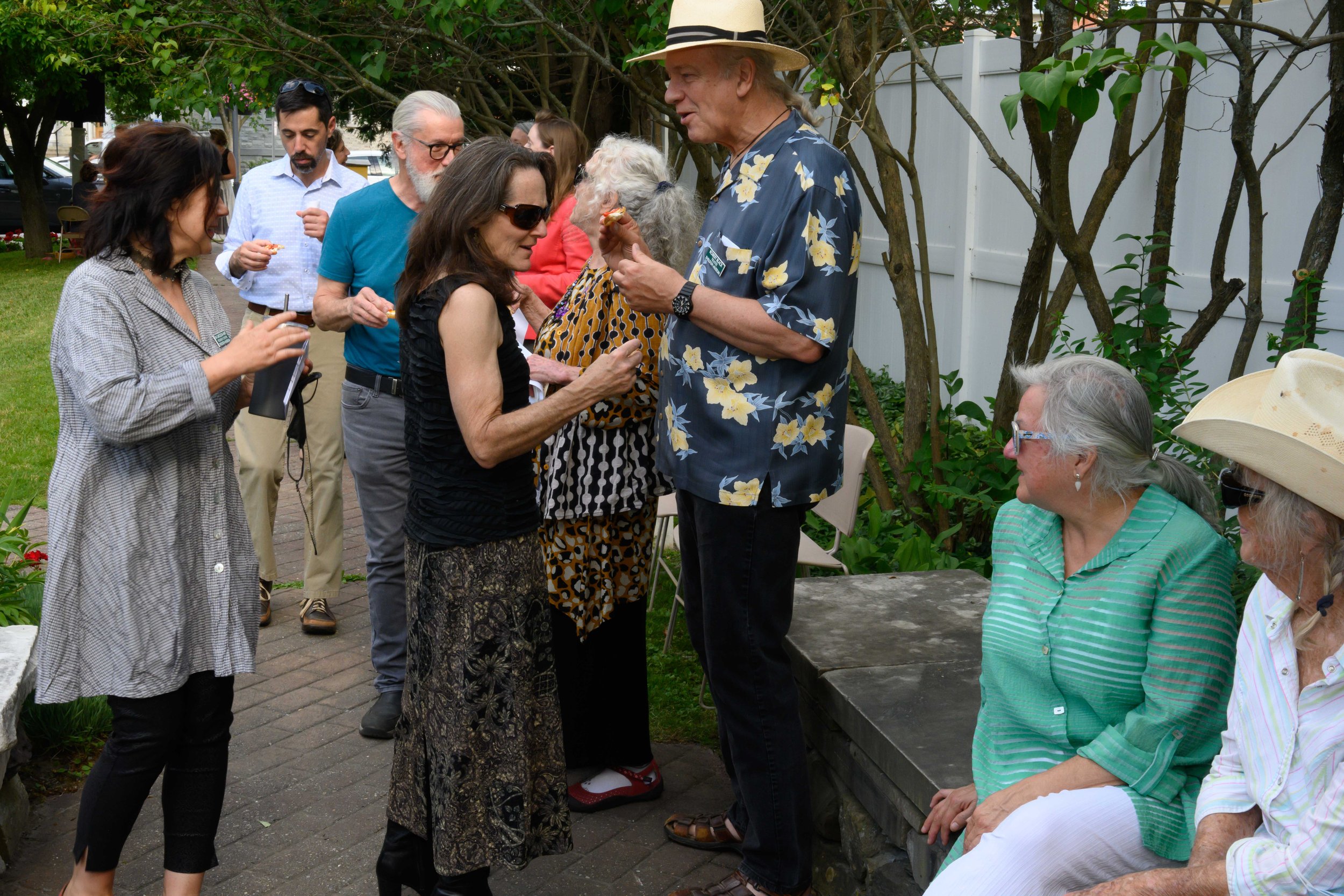

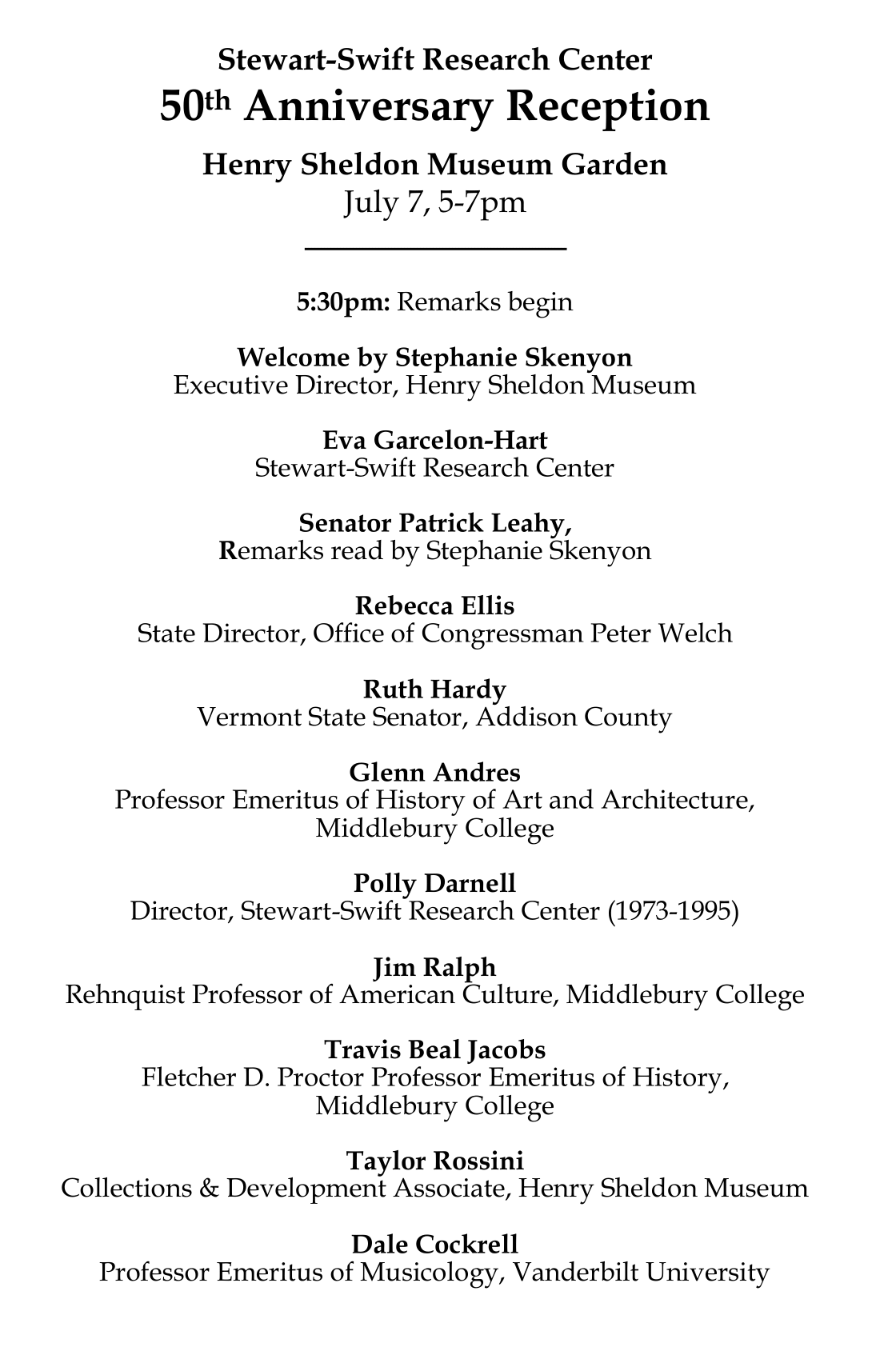
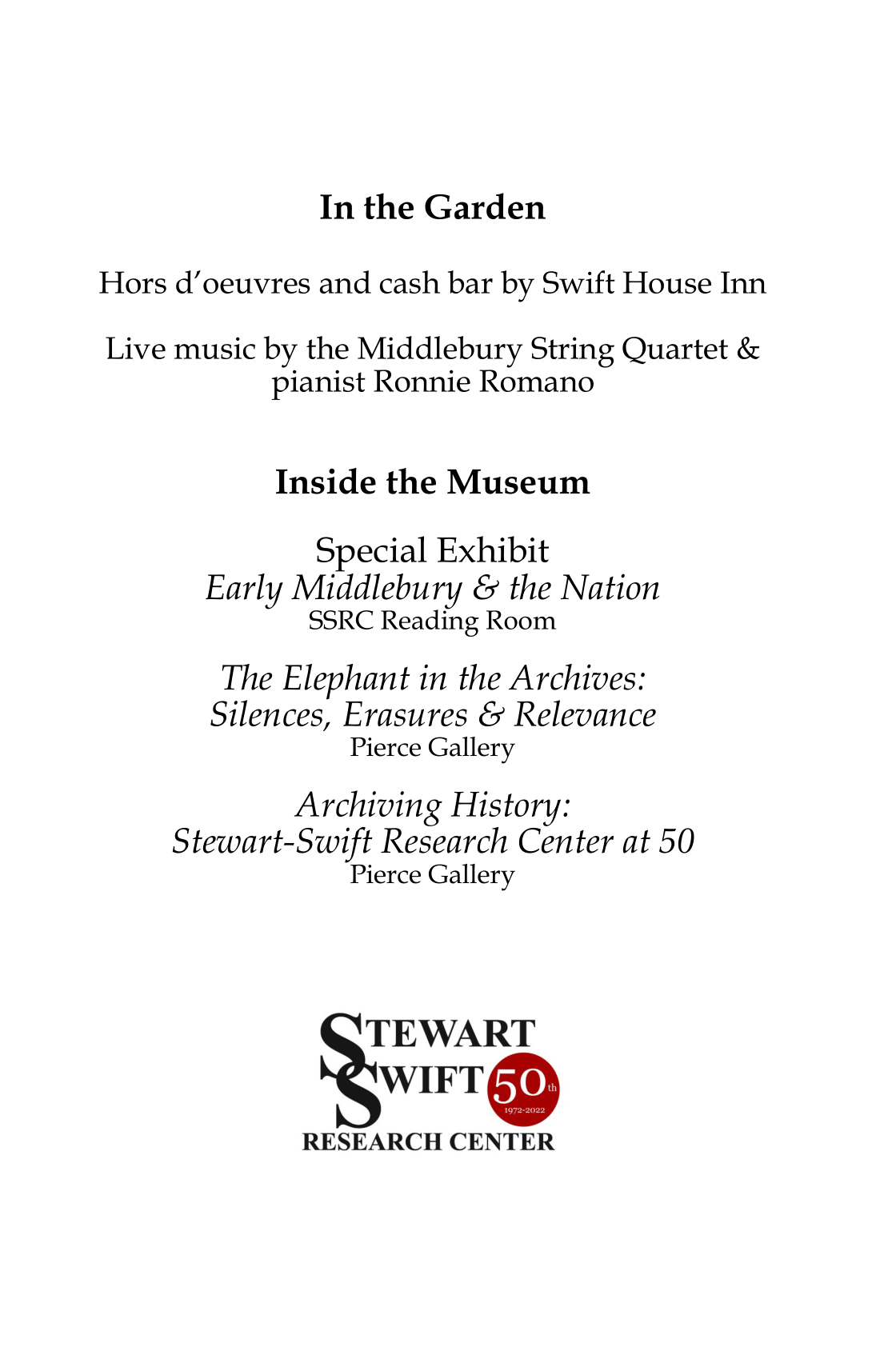
Remarks on the Occasion of the 50th Anniversary of the Stewart-Swift Research Center
July 7, 2022
Senator Patrick Leahy (D-VT)
Marcelle and I congratulate the Stewart-Swift Research Center on 50 years of making Addison County's historical records accessible to the public.
Our history isn't just the deeds of presidents and generals, it's the music played in family parlors, the entertainments attended by entire communities, and the letters exchanged between two women who loved one another deeply in a time when such things weren't spoken of.
You have taken the vision of Arthur KD Healy and the donations of Jessica Stewart Swift and the community, and built an archive and Research Center that lets us, and future generations, discover our history. It's a precious gift, and I thank you for it.
Professor Glenn Andres (HSM Honorary Trustee)
“We are celebrating one of Vermont’s great treasures. Among the State’s three major historical archives – VT Historical Society, UVM, Sheldon’s Stewart-Swift Research Center – the Sheldon stands out for its focus and completeness.
Here one finds a remarkably comprehensive coverage of every aspect of life in Middlebury and surrounding towns – touching on education, politics, industry, biography, architecture, commerce, literature, music, and daily life in one place. This is combined with the fact that that one place, Middlebury, not only has a long history, reflecting virtually every major pattern in New England from the late 18th century onward, but was also connected to, and influential in, the outside world. History of more than local significance happened here…Read More
Travis Beal Jacobs (HSM Honorary Trustee)
The J. Robert Maguire Fund recognizes the significance of the Stewart-Swift archival collection. Bob left corporate law in NYC in 1963, and he and his family settled at Hand’s Cove in Shoreham overlooking Lake Champlain. ..He soon became friends with Jessica Swift and Paris Fletcher (Sheldon Trustee 1956-73), and there is a photo of Bob with Jessica Swift at the dedication fifty years ago. Arthur Healey, a classmate of Fletcher’s at Middlebury College who married Fletcher’s sister, served for many years as the Museum’s President. He played an instrumental role in the building of the Research Center. Bob Maguire became a Trustee and then, an Honorary Trustee of the Sheldon Museum…
Dale Cockrell (Professor Emeritus of Musicology, Vanderbilt University)
Shortly after Jessica Stewart Swift died in 1982 (at 110 years of age), her house and many of its contents were auctioned off. I happened to be at that auction and when boxes of “old music” were open to bid, I won the lot for $50. After a great deal of sorting, the collection eventually numbered 574 pieces of sheet music and 199 music books, including binder’s volumes that had been assembled by all the family women. The bulk in total fills seven banker’s boxes.
The Jessica Stewart Swift Music Collection is unusual and valuable because of its complete and comprehensive nature, for it captures the family’s musical interests and passions over three generations. As such it is special, perhaps even unique, among family collections of American music. The Collection has been donated to the Sheldon Museum by Dale and Lucinda Cockrell, and will soon assume an honored position in the Jessica Stewart Swift Research Center. Jessica’s music is coming home!
Polly Darnell (Former SSRC Archivist)
I had come to the Sheldon originally while doing research on women’s work in the 19th century and found more resources for that here than at the major Vermont institutions. I was hired to move the collections into the newly built RC, organize and make them available to researchers, with the help of many volunteers and sometimes additional staff. In this role, I not only was able to discover more resources on women’s work, like the timebooks of a Middlebury woolen mill and a series of family letters comparing working here to working at a giant cotton mill in Lowell, Mass, or teaching school or keeping house on a large farm…Having the collections used by a wide range of researchers has always been the RC’s goal so that we can all learn from them and also learn what’s missing and needs to be added. What’s in the archives is not hidden, but it does require collaboration to make the stories they hold known… Read More
Professor Jim Ralph
In fall of 1989, I returned to Middlebury College as a visiting assistant professor of history. Working with my colleague, Susan Gray, I now found myself in the position of exposing students in the research seminar on American history to the exciting world of historical research by taking them to the Stewart-Swift Research Center.
Over the next 15 years, that seminar was one of my favorite courses to teach, often co-taught with my colleagues Travis Jacobs and Bill Hart, and a key moment in each edition was the visit to the Sheldon museum. I knew from my own experience how transformative that exposure could be…Read More
Bill Hosley (Middlebury College ‘77)
Simply put - my experience with the Stewart-Swift Research Center - getting to know Nina Mudge and Polly Darnell well, even meeting Mrs. Swift a couple times - spending 100 hours there as an undergraduate finding their way into what turned out to be a life’s work with local history, local art and industries, local everything. That experience was pivotal.
My first primary sources-based scholarship, first experience with public programming (Scott Morrison and I did walking tours around Middlebury for Sheldon), first inside exposure to museum work - it was the most inspirational part of my college years. 40 years later, we have visited hundreds of history museums. What I did not realize at the time was how extraordinary and rare Henry Sheldon was. A pioneer with a kind of innate genius for the work he did. He may not have been fully appreciated in his own time - I do not know. But he is and deserves to be now. Sheldon Museum is a national treasure - because Henry was.
William B. Hart (Professor Emeritus of History, Middlebury College)
As a History professor and as a historian of microhistory – the practice of examining closely the life of a person, community, or movement that reveals larger, national cultural and social trends and meanings – I have found the Stewart-Swift Research Center invaluable. Thanks to the SSRC’s rich collection of manuscripts, printed books and documents, and ephemera, my students and I have been able to document and tell intriguing stories about Middlebury, Addison County, Vermont, and beyond that illuminate myriad national narratives about the histories of enslavement; abolition and Liberian colonization; gender, race, class, and religion; popular culture and entertainment; education; medicine; political movements; and reform societies. The Stewart-Swift Research Center is an invaluable asset to the town of Middlebury and to the state of Vermont, and must be treasured and supported by all.
Orson Kingsley (Former SSRC Archivist)
My first job after graduate school was as the archivist for the Stewart-Swift Research Center. I had no idea what I was stepping into. Not only did the position come with an amazing, highly educated number of dedicated volunteers, but also with an archival collection that was truly profound in scope. I spent three wonderful years exploring the diverse archival wilderness that I suddenly found at my fingertips. The experience was life-altering, convincing me I made the correct decision in choosing the world of archives as my career path. It has been twelve years since I left the Sheldon. I’ve yet to lay eyes on another archival collection (and artifact collection) that so uniquely fit together to tell the story of a location and its people. Make no mistake, the SSRC is not a Middlebury historical society for it is beyond that. The historical radiance within its collection holds the reflection of who we were, who we are, where we came from, and where we are going. Though located in Middlebury, the SSRC offers us a truly unique glimpse into Addison County, the state of Vermont, and how Vermont fits in with the history of New England and the entire country.



